RADICAL HOPE
'Radical Hope'
is a 3'x 12' visual story-drawing scroll. The drawing chronicles the last 60 years of the Earth's conservation efforts to protect endangered animals, damaged ecosystems, and confront climate change, while showcasing effective activists/change makers who dedicated their lives to protect the Earth. The scroll visually acts as an ongoing timeline, meaning it hopes to inspire future generations to continue the work of protecting the Earth.
ECO-ACTIVISTS/CHANGEMAKERS SINCE 1960
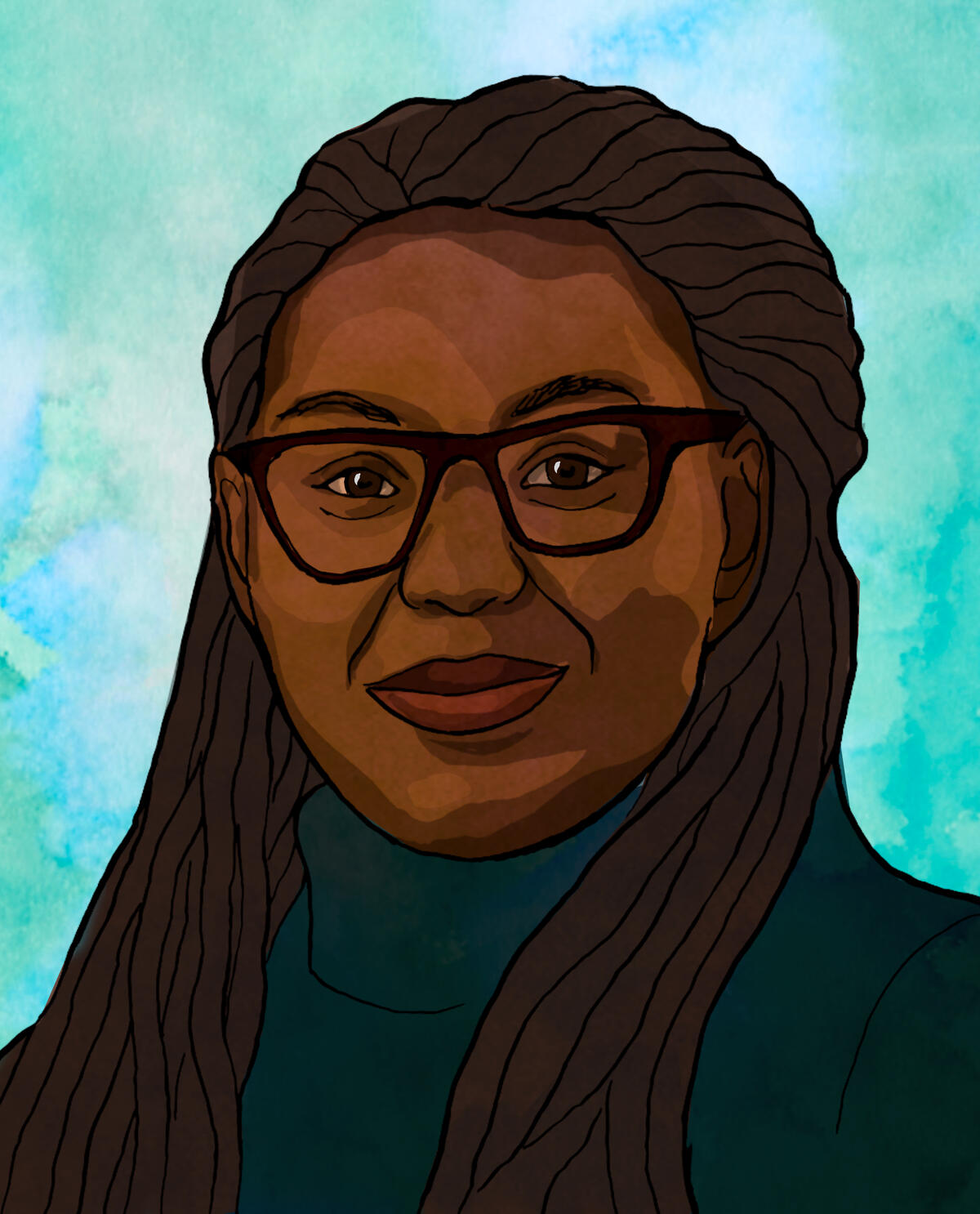
Kristal Ambrose (Bahamas)
is an environment activist and marine biologist who convinced the government of The Bahamas to ban single-use plastic bags, plastic cutlery, straws, and Styrofoam containers and cups. The nationwide ban went into effect in January 2020. Ambrose first became concerned about the issue a decade ago when she had to extricate plastic that had been swallowed by a sea turtle. The traumatic operation took two days and left her with a conviction that she would never drop waste on the ground again. At the age of 22, she was invited on an expedition to study
the Pacific Ocean, where she sailed through the vast mass of marine and household debris known as the western garbage patch. This brought home how individual consumer habits had global environmental consequences.
A short while later she began the campaign that was to become the Bahamas Plastic Movement. Ambrose has engaged youths through many programs in order to inspire and empower them. She designed an upcycle program to motivate them to come up
with original ideas about how to repurpose plastic waste. A Junior Plastic Warriors environmental education program was soon created that included music, dance, and art.“It doesn’t matter how young you are, where you are from or what color you are. This is your world. This is your future. You deserve a seat at the table in making decisions that impact you.”
- Kristal Ambrose
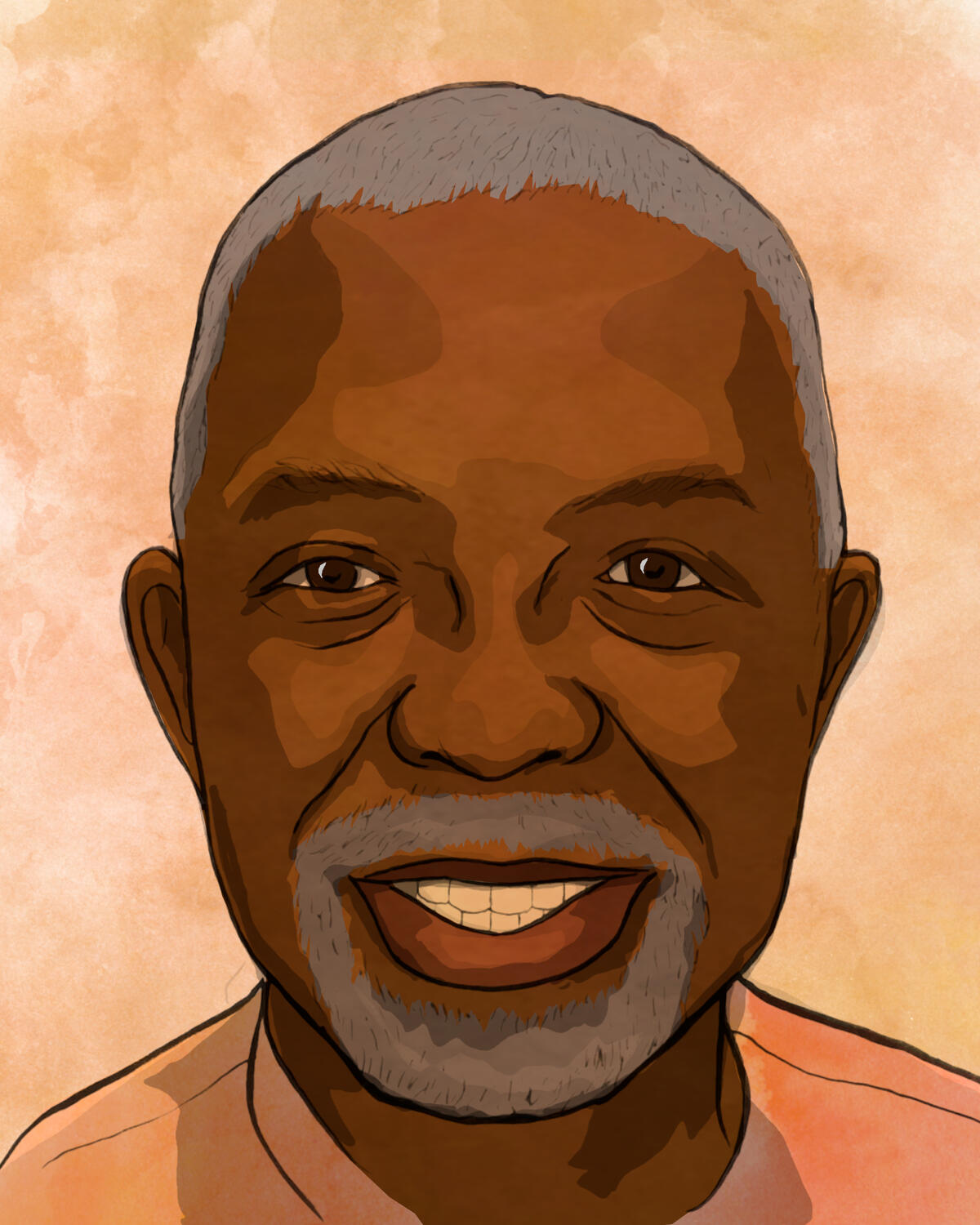
Godfrey Nzamujo (BENIN)
is the founder and director of Songhai, his zero waste farm in Benin. Nzamujo began devising a "zero waste" agriculture system that would not only increase food security, it would also help the environment and create jobs. Zero waste agriculture, a type of sustainable farming, takes these principles even further by introducing a regenerative loop, where waste in one area produces feed, fuel or nutrients for another. Songhai has several "eco-literacy" development programs. They range from 18-month training courses for farmer-entrepreneurs, to shorter stays to learn techniques like irrigation. People come from all over the world to study Nzamujo's methods. After seeing success on his first zero waste farm, he expanded throughout Benin and western Africa. Today, the Songhai model is implemented across the continent, including in Nigeria, Uganda, Sierra Leone and Liberia. Nzamujo says they've trained more than 7,000 farmer-entrepreneurs and more than 30,000 people in total since it began.Nzamujo believes zero waste agriculture is now steadily tackling the issues he set out to defeat three decades ago: hunger, unemployment and environmental degradation. And he wants to see it go further."Yes, it is a revolution. yet it's a revolution that is not them against us, "It is a revolution that is inviting every people to a new way of seeing things." - Godfrey Nzamujo
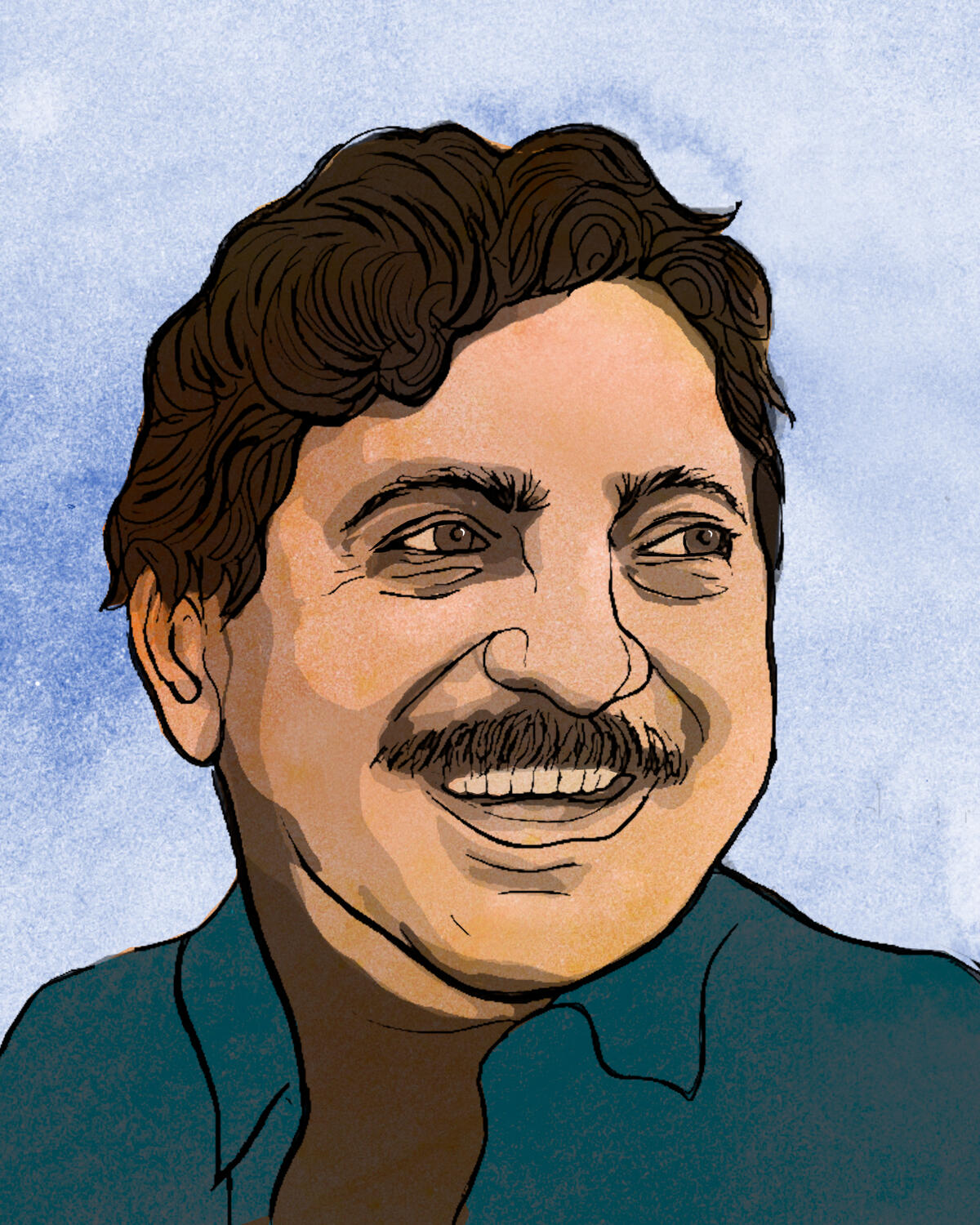
Chico Mendes BRAZIL
was a Brazilian rubber tapper, land rights and trade union leader. Chico Mendes pioneered the world's first tropical forest conservation initiative advanced by forest peoples
themselves. His work led to the establishment of Brazil's extractive reserves protecting forest areas that are inhabited and managed by local communities. The Chico Mendez Extractive reserve, the largest (2.4million acres) reserve in the amazon was created in his honor, protecting the livelihoods and culture of the Amazonian people and to ensure sustainable use of natural resources“At first I thought I was fighting to save rubber trees, then I thought I was fighting to save the Amazon rain forest. Now I realize I am fighting for humanity” – Chico Mendes
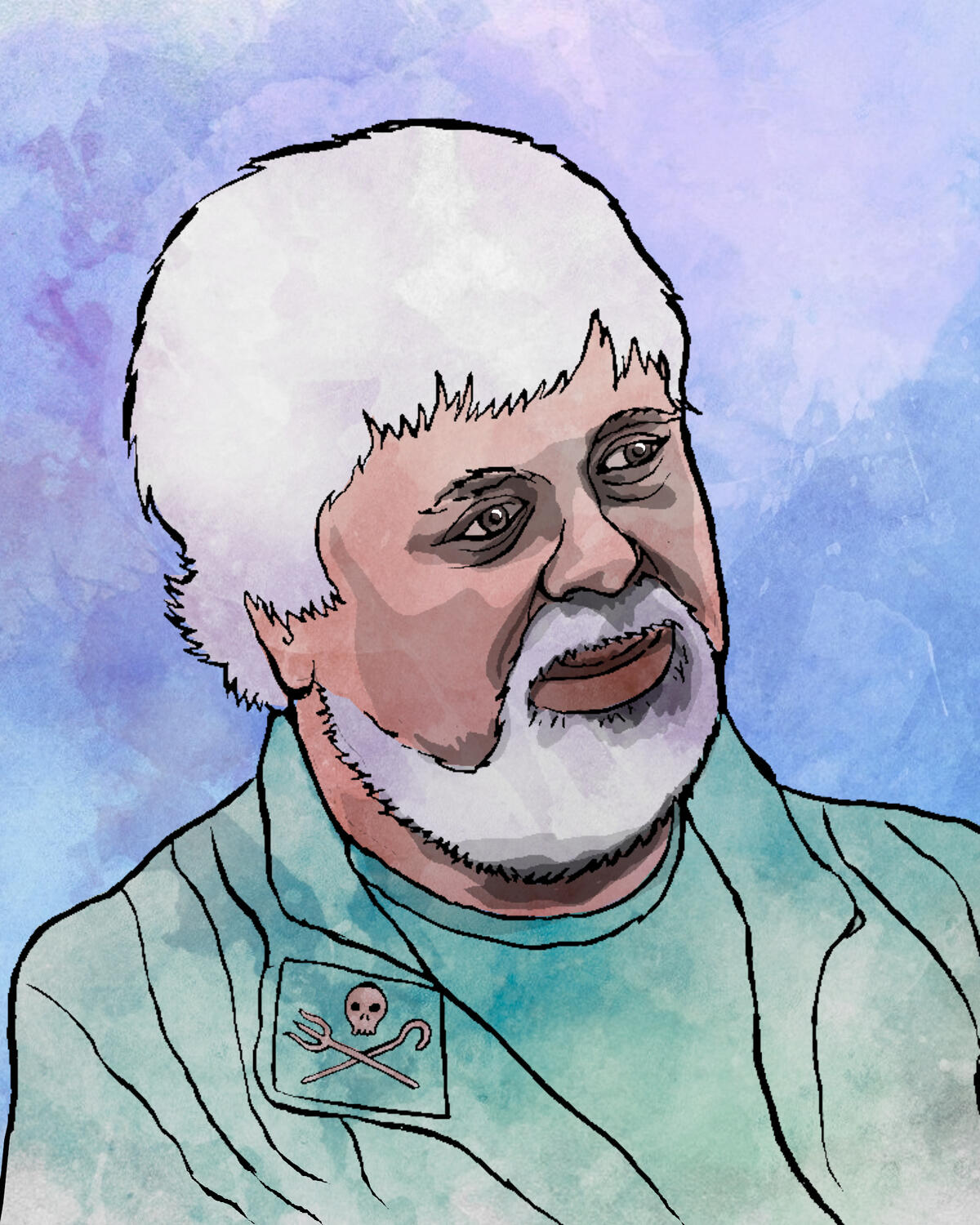
Paul Franklin Watson (CANADA)
is a conservation and environmental activist, who founded the Sea Shepherd Conservation Society, an anti-poaching and direct action group focused on conservation activism. Watson leads a pirate organization that sails around the world, stopping fishing ships who are committing deadly and illegal destruction against precious sea life. Wearing a long bowie knife and AK-47s on board, he threatens to ram any ship that won’t give in to demands to stop their deadly actions. Watson was a co-founder of Greenpeace, and a board member of the Sierra Club. He worked for the Canadian Guard and Norwegian and Swedish merchant marines before becoming a professional environmentalist.“Follow your dreams and use your natural born talents to make this a better world for tomorrow. Be a voice for the future, and a voice for the planet” - Paul Franklin Watson
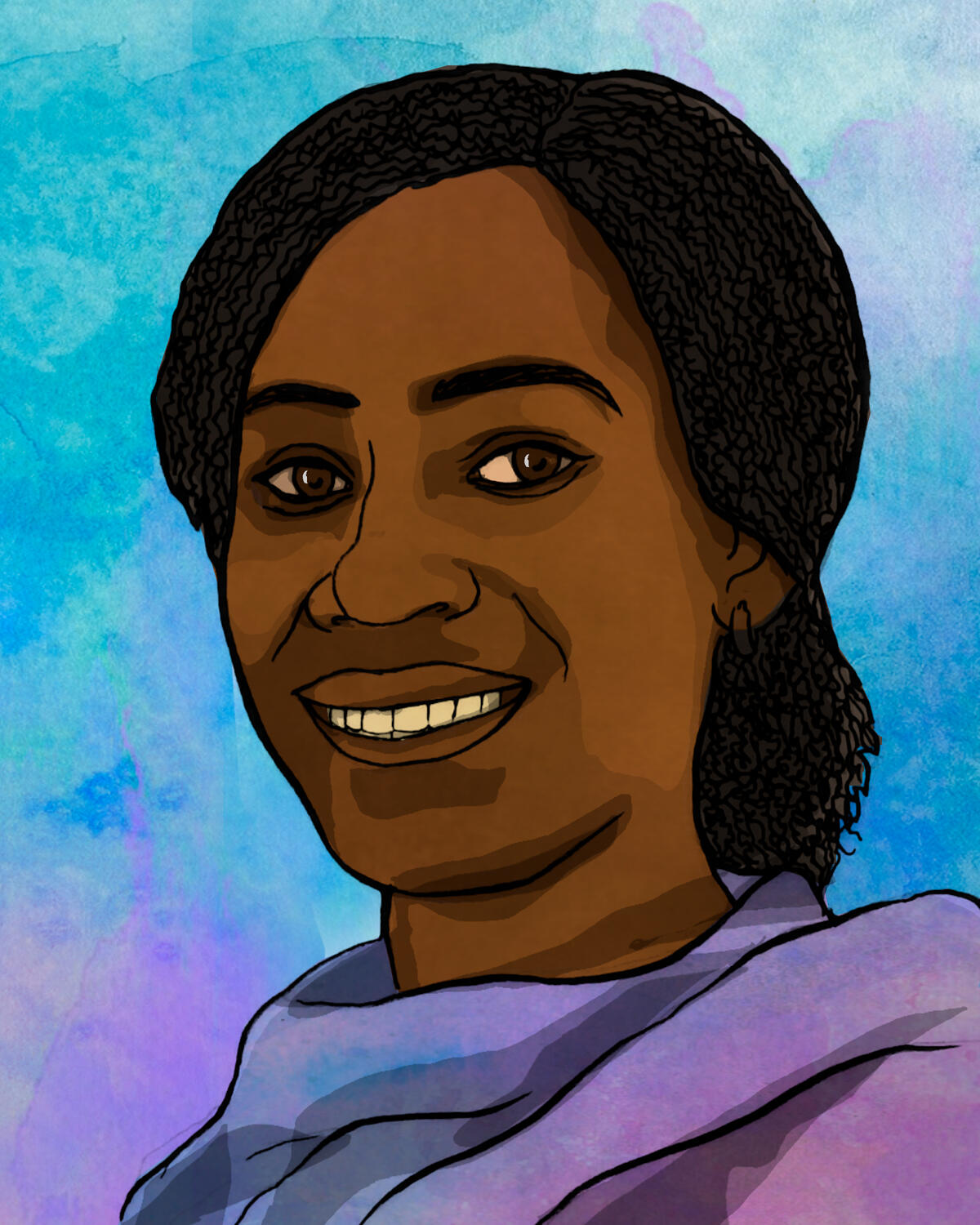
Lydia Halidi (Comoros)
is a biologist of Comoros, a country of several small islands off the coast in East Africa, that are exposed to climate disruptions. She is working with local communities on mangrove reforestation and leading an awareness campaign on the impacts of deforestation and climate change, and inspiring others to take action, on a local and global level“Reforestation is one of the best solutions we have for climate change. Today we cannot ignore theclimate emergency” - Lydia Halidi
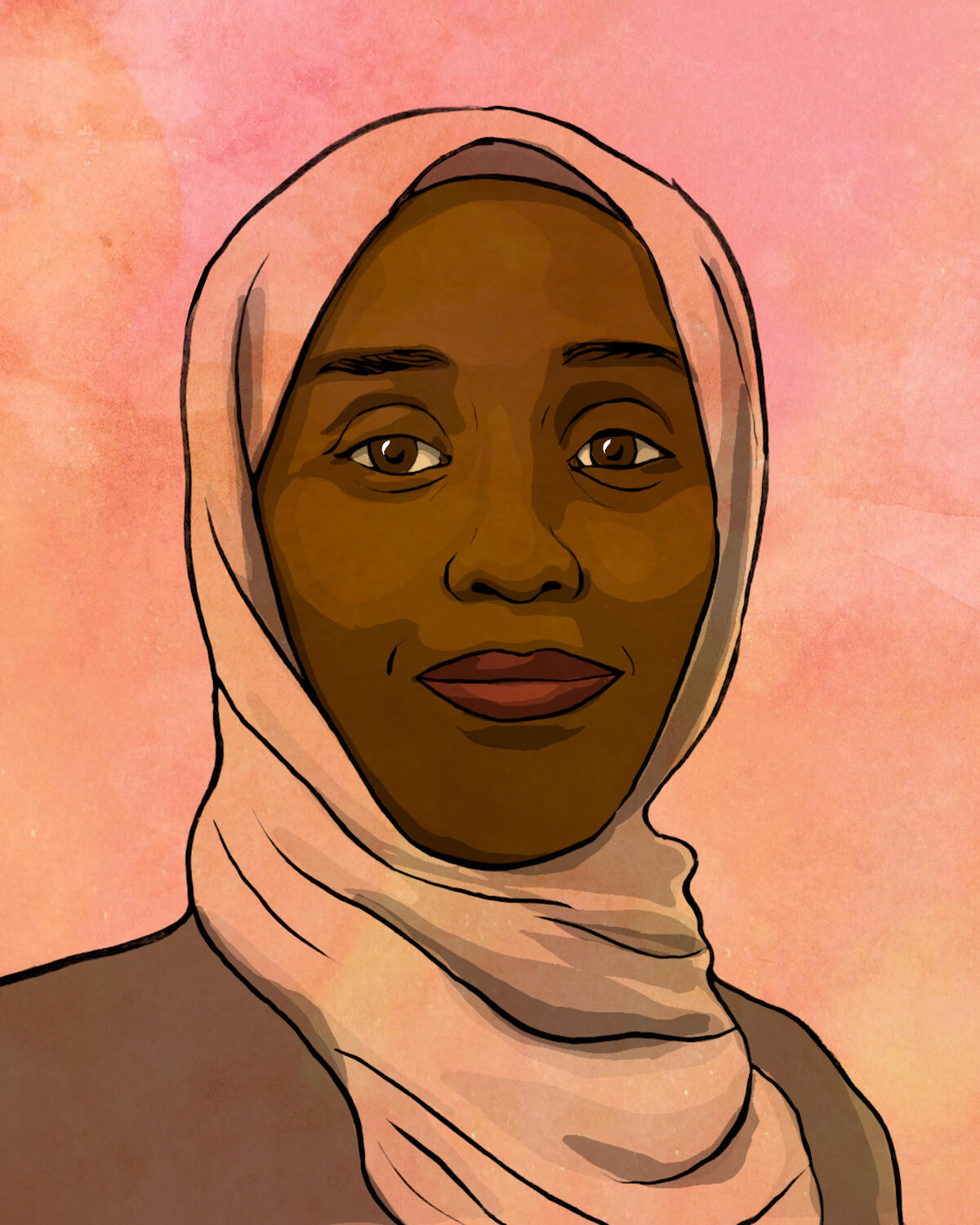
Amina Idan Paul (Djibouti)
is an environmental activist, a blogger, and the founder of an environmental movement called Ecolo à Djibouti. Through these initiatives, she raises awareness about environmental issues and the importance of changing our attitude towards nature.“It is futile for us to say we can do nothing to protect the environment because others are causing more damage. We have to act. Now. I’m convinced that we need to stop waiting for change to come from the outside, and instead start thinking about what we can do today. There is no such thing as small actions. Every action counts, and it all builds towards us reducing our impact on the environment. These small gestures, when put together, can make a big difference.” - Amina Idan Paul
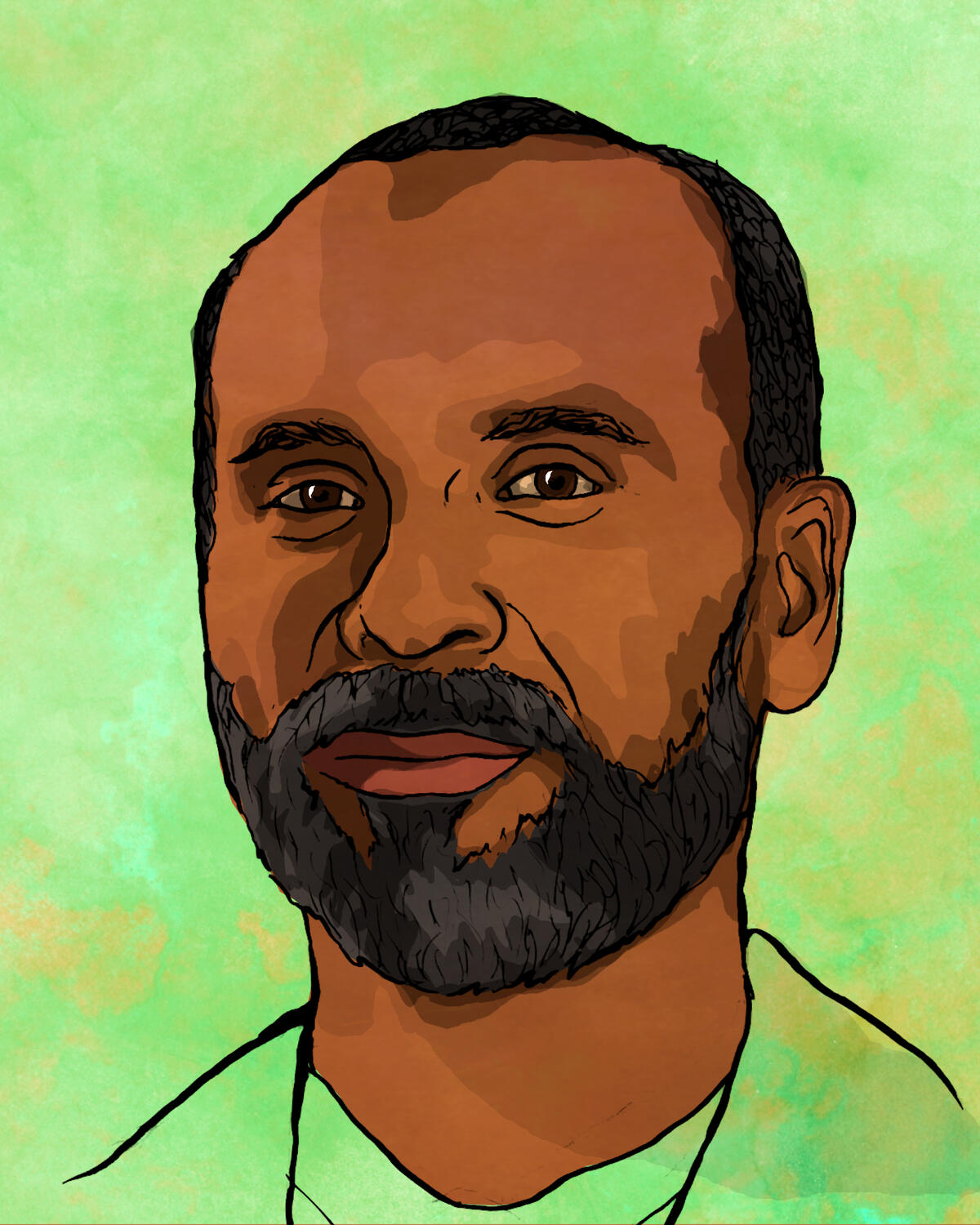
Atherton Martin (Dominica)
is an agronomist and environmentalist, successfully organized opposition to halt a copper mine that would have devastated 10% of the original tropical rainforests covering Dominica, known as the nature island for its rich biodiversity. Two thirds of Dominica is covered by dense tropical forests,The deep ocean surrounding the island is equally rich in biodiversity. With so many of its natural resources left intact, a rarity among Caribbean nations, Dominica has become known as the nature island. Atherton Martin successfully protected this lush tropical island from being devastated by a ma jor copper mine. Now through his work with the Development Institute, where he served as executive director, Martin continued to promote ecologically sound and economically viable development programs that center around public participation.
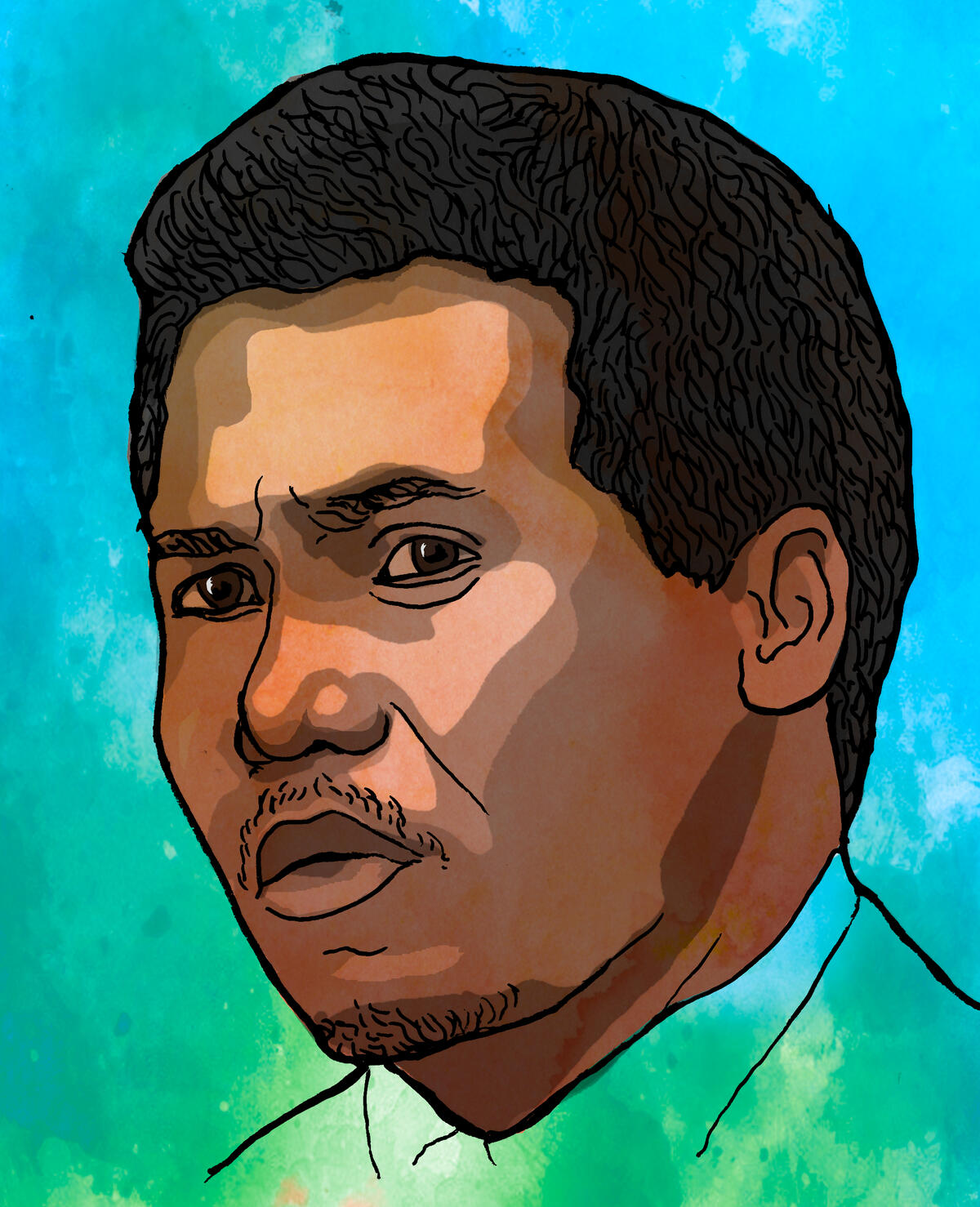
Demetrio de Carvalho (East Timor)
Is a founding father and environmental hero of the newly formed nation of East Timor, and former clandestine resistance leader who went on to head Haburas—the first environmental NGO in his homeland. Haburas Foundation tackled the country’s environmental crises. Operating out of his home on a shoestring budget, de Carvalho is largely credited for spearheading the progressive inclusion of four key articles in East Timor’s constitution: the right to a healthy environment; respect for traditional customary law; prioritization of sustainable development; and natural resource management.Under his leadership, this island nation—a Portuguese colony until 1975, ravaged by centuries of occupation and warfare—charted a new course for sustainable development and environmental protection. De Carvalho and Haburas also led community reforestation, wetlands protection initiatives, and watershed management programs to reduce forest and land degradation. Guiding these environmental efforts was the cultural revitalization of Tara Bandu, the East Timorese cultural practice of acting in harmony with nature. what de Carvalho calls East Timor’s “traditional ecological wisdom.”
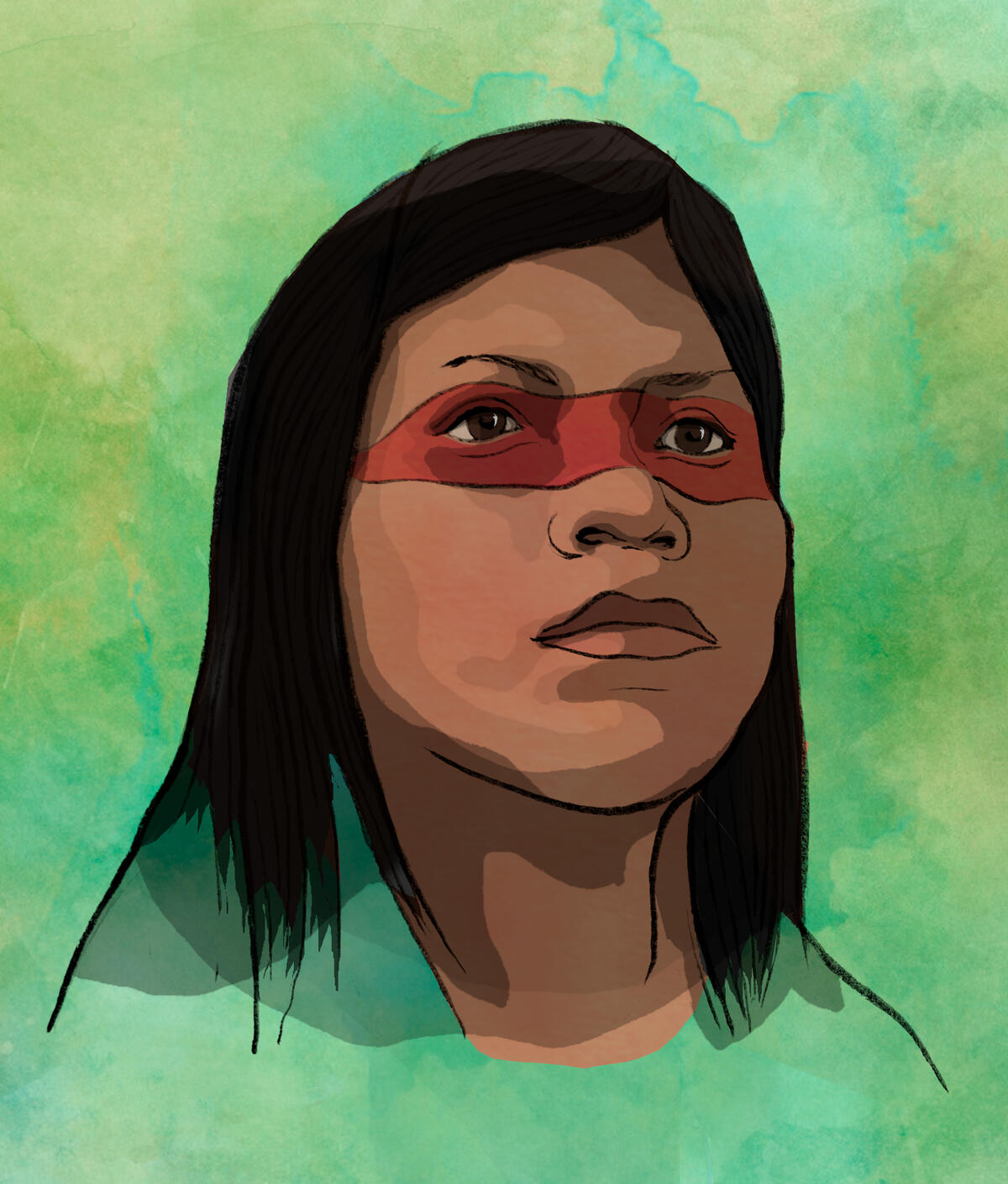
Nemonte Nenquimo (Ecuador)
Nemote Protector of the Ecuadorian Amazon is an immensely impactful activist and leader, having successfully sued to protect half a million acres of the Ecuadorian Amazon from oil drilling, protecting its ecological integrity and preventing these reserves being exploited and the forest felled. She is also an active indigenous politician, ensuring the voice of the Waorani nation are heard and their stewardship of the Amazon is respected.
Nemonte Nenquimo, 33, is an indigenous Waorani woman who co-founded the Ceibo Alliance in 2015 in order to fight back against planned oil concessions on indigenous land in Ecuador.
Nenquimo held regionwide assemblies and helped her people launch a digital campaign targeting potential investors with the slogan “Our rainforest is not for sale”. At the same time, she helped communities maintain their independence from oil company handouts by installing rainwater harvesting systems and solar panels and supporting a woman-led organic cacao and chocolate production business.Nenquimo helped bring the Waorani case to the courts and served as the lead plaintiff in a successful lawsuit against the Ecuadorian government for violating the Waorani’s right to free, prior, and informed consent. She was awarded the Goldman environmental prize for South and Central America in 2020.
In 2020, she was awarded UNEP’s 'Champions of the Earth' award and also named in Time Magazine’s 100 most influential people in the world.
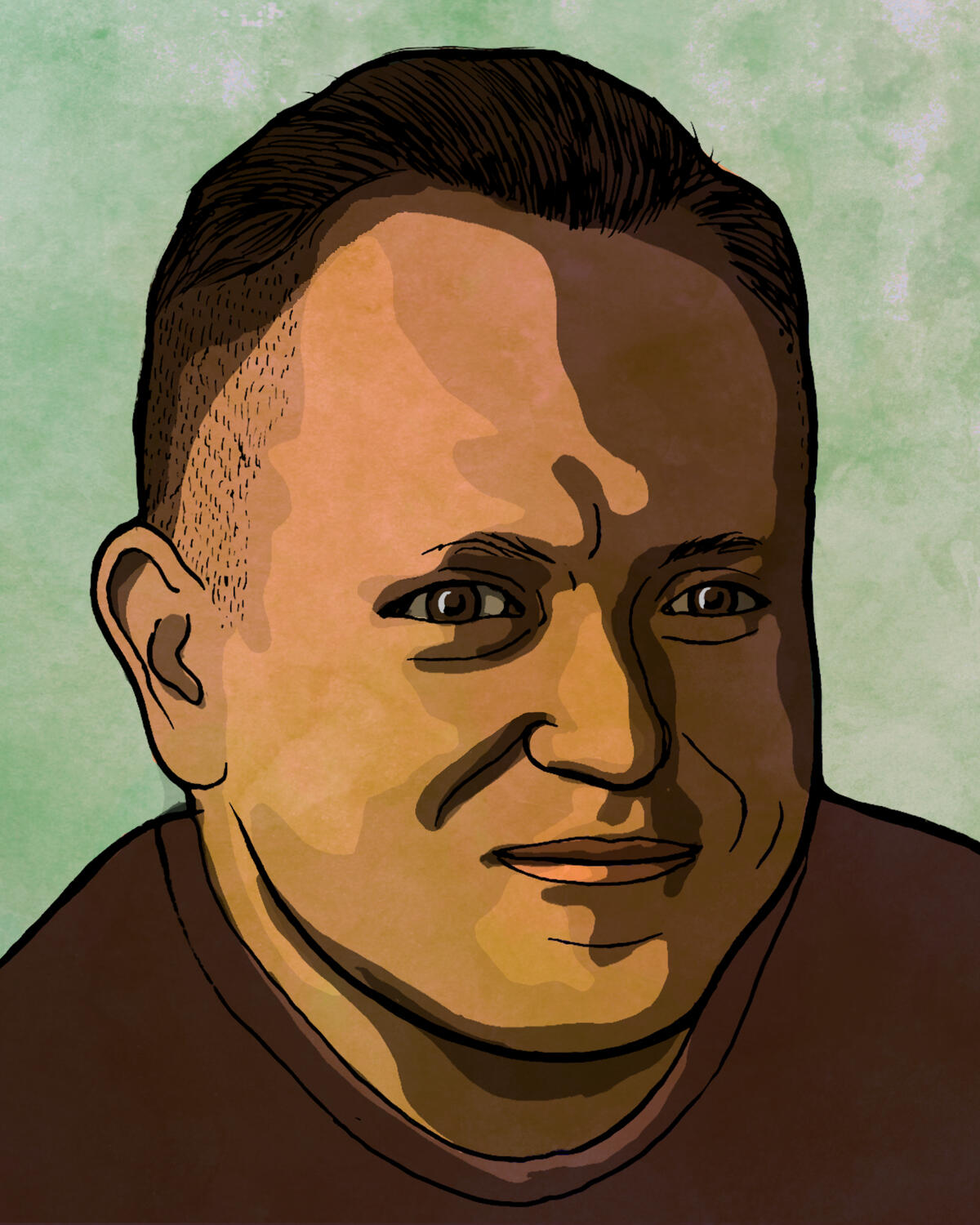
Hector Barríos (El Salvador)
Hector Barríos is an attorney and activist in San Isidro. Barrios and his partner Zenayda Serrano, both of whom have worked tirelessly over the last decade to prevent the contamination of their environment and society by invading transnational mining companies, mostly from Canada and the USA. Hector Berrios was the driving force behind the pressure exerted by the National Roundtable Against Metal Mining on the Salvadoran government to instigate and implement a ban on metal mining in the country. This was the first ban of its kind in the world.The Canadian Pacific Rim mining company lost its lawsuit against the government of El Salvador at the International Court. The government had withdrawn the company’s concession to exploit gold deposits in the area of Cabañas, and it was because of the efforts of Hector and MUFRAS-32 which had done so much to expose the damage and contamination caused by the
company’s exploration processes. Hector is also an active member of The Movimiento Unificado
Francisco Sánchez-1932 (MUFRAS-32) is a community-based organization formed for those who struggle for the promotion and defense of human rights through organizing, trainings and awareness-raising for social justice. MUFRAS-32 engages in political advocacy and the development of productive activities to improve the standard of living of poor communities living in the Municipality of San Isidro in the Department of Cabañas, El Salvador, and promotes the rights to natural resources such as land and water.
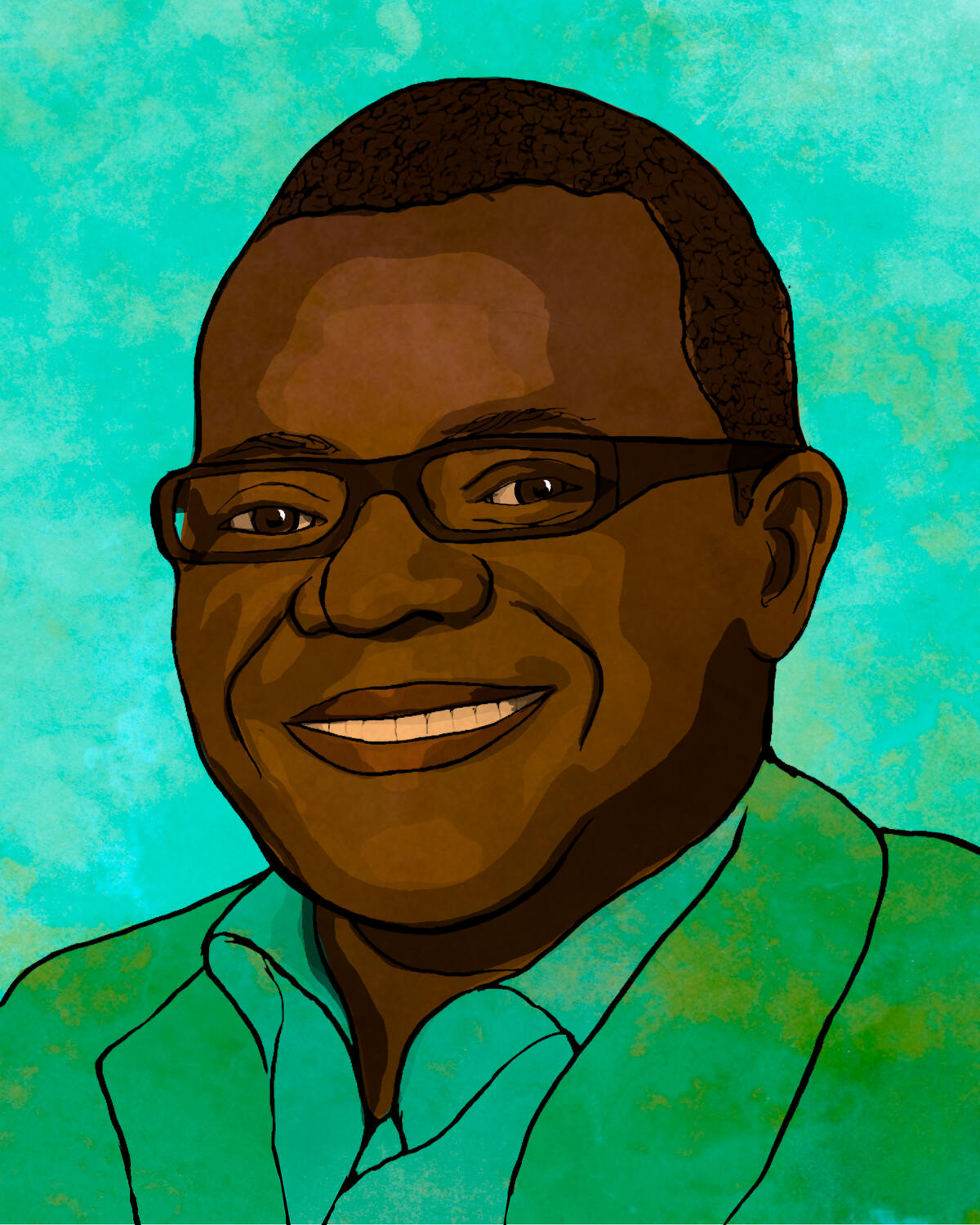
Marc Ona (Gabon)
Marc Ona is an environmental Protector, founder of the environmental NGO Brainforest and president of Environment Gabon, a network of NGOs. Marc Ona Essangui led efforts to expose agreements behind a Chinese mining project in Gabon, that threatened equatorial rainforest ecosystems. Deep inside Gabon's rainforest, is a sacred place bathed in a permanent rainbow. The breathtaking Kangou Falls have inspired awe among the local pygmy and Bantu ethnic groups for centuries. They believe that many of their ancestors originated in these frothy pools, explains Marc Ona Essangui, who has been jailed for his fight to protect Gabon's rainforest.
Because of Marc Ona’s efforts, the mining project is now on hold, the area to be affected by the dam has been substantially reduced, and to assure environmental protection, two representatives from Environment Gabon monitor the project. This represents an unprecedented victory for civil society in Gabon."My fight is the fight of all the people concerned with the survival of the planet. Our forest is home to the most extraordinary biodiversity. It is also a huge natural pharmacy. To destroy it would mean the ruin of humanity." - Marc Ona
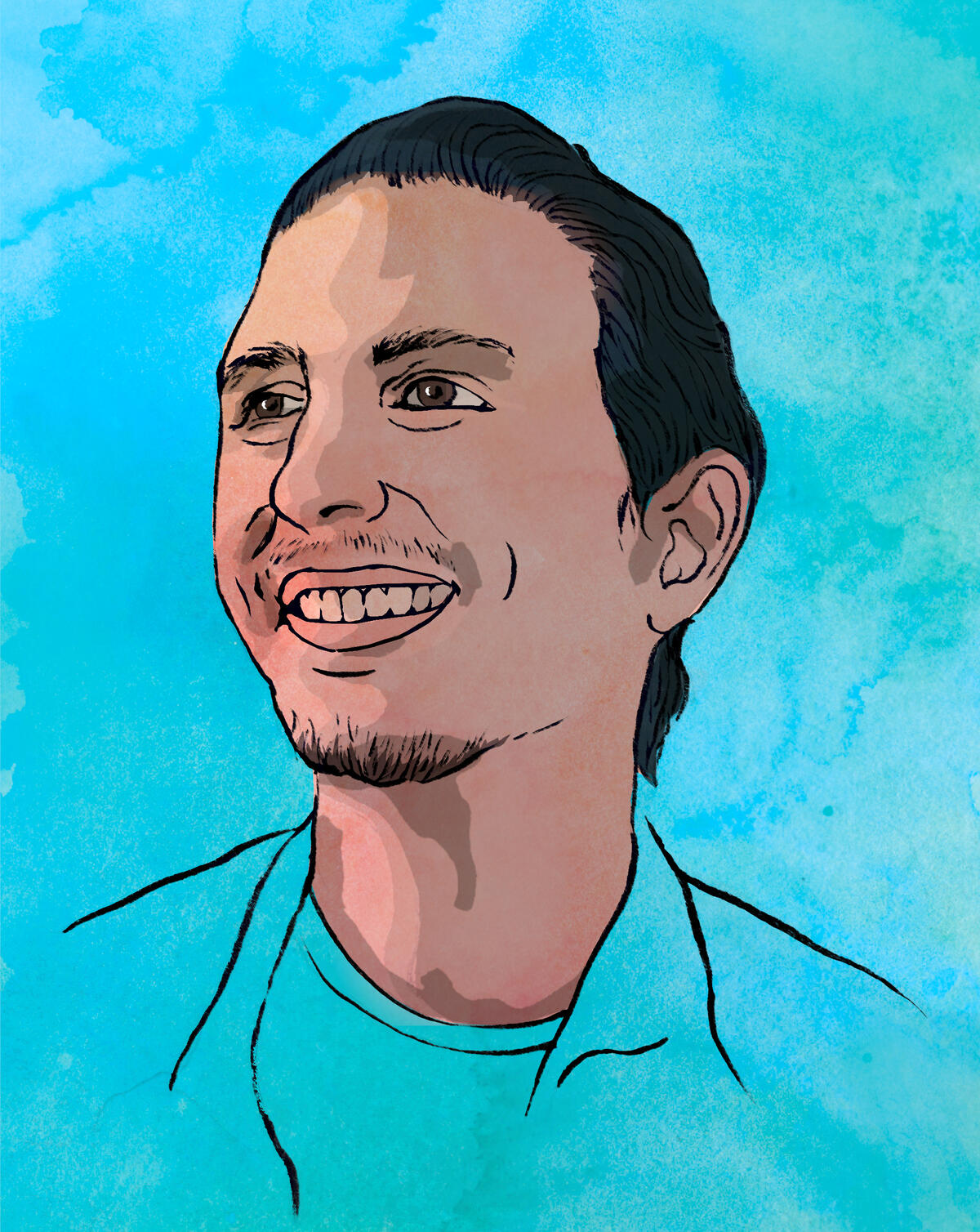
Lefteris Arapakis ( Greece)
The co-founder of Enaleia, Lefteris Arapakis planned to act on the Greek economic and climate crisis. His family came from a history of active fishers. However, he began to realize that overfishing and pollution were detrimental to Greece’s fisheries. Many of the fishing nets began hauling in nets full of trash, that fishermen dumped back into the oceans.
To tackle plastic pollution, with the help of his Enaleia team, Lefteris launched the Mediterranean Cleanup. This program provides monetary incentives to fishermen for the plastic they bring back to shore. This has resulted in the removal of approximately 12 tonnes of plastic from the ocean per month. In addition, Enaleia has partnered with Healthy Seas, an organization that turns discarded ocean plastics into tangible products such as carpets and socks.
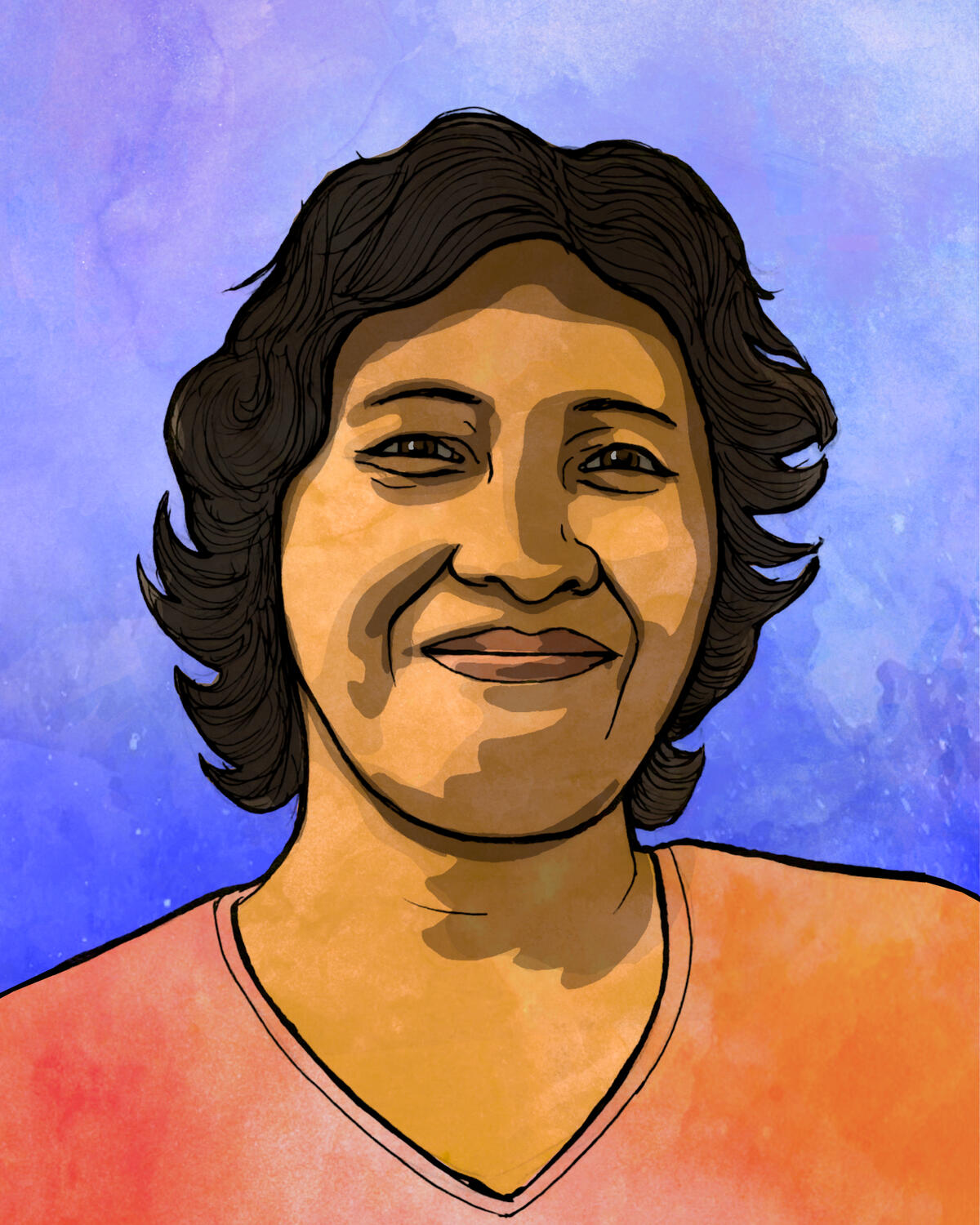
Jean La Rose: (Guyana)
is a key leader in the Indigenous struggle for full rights to traditional lands. Jean La Rose coordinated the first indigenous land rights lawsuit in Guyana to protect streams, rainforests, and endangered indigenous communities harmed by mining. Jean La Rose has been working with the Akawaio, Arekuna, and other Indigenous communities to halt the mining in their territories and to secure full rights to traditional lands. In decades past, most Indigenous people in Guyana knew little about their legal rights. La Rose conducted workshops to inform indigenous communities that their traditional rights can and should be recognized by Guyana’s laws. La Rose influenced revisions of the Forest Act, and was able to reduce the number of logging concessions and won a government moratorium on logging in 1993. Her work was instrumental in guaranteeing for the first time that some Indigenous rights, including the right to a healthy environment, be included in the constitution. She continues organizing against mining, logging, and other environmentally destructive practices.
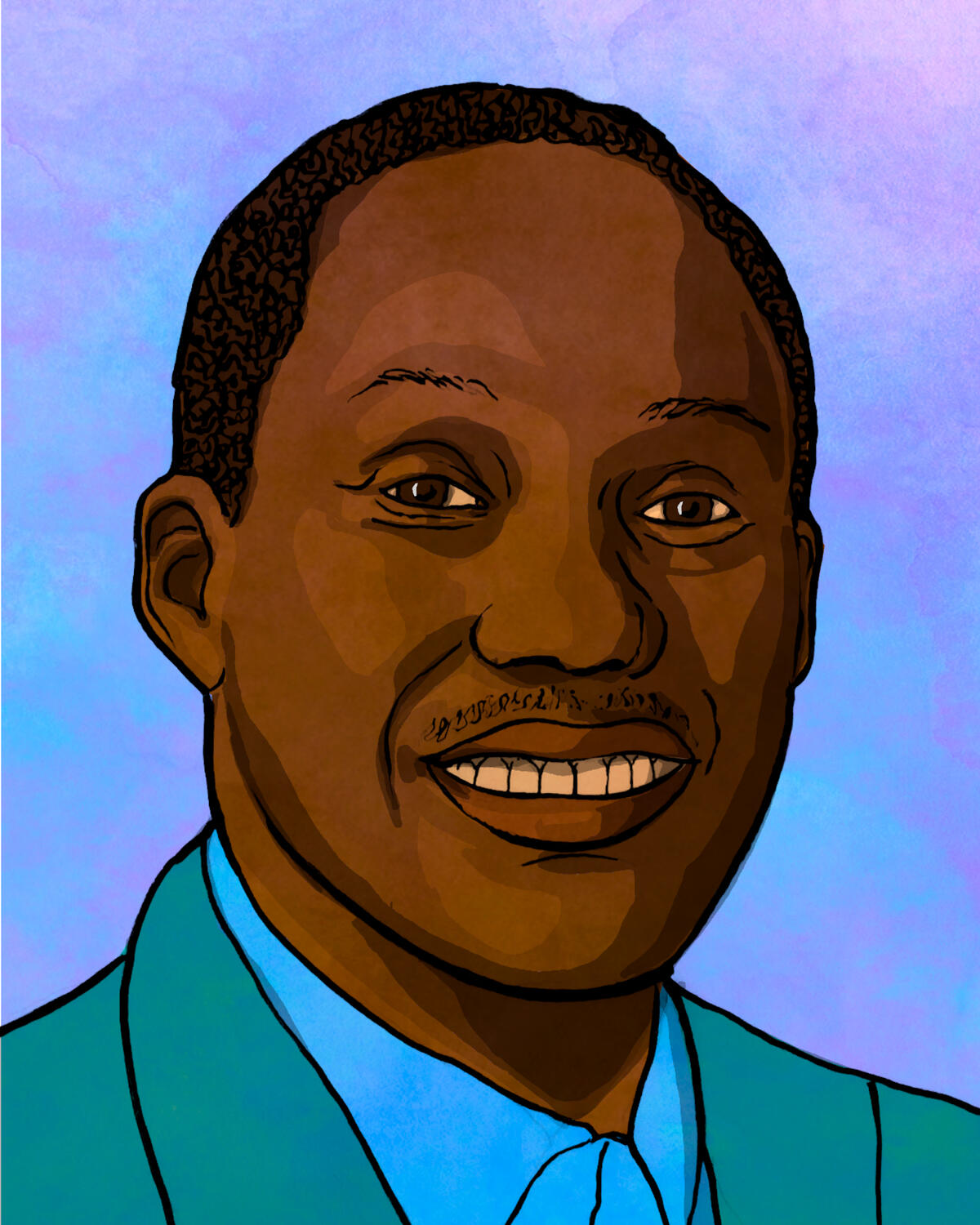
Chavannes Jean-Baptiste (Haiti)
is an Agronomist who founded the Peasant Movement of Papaye (MPP) in 1973 to teach the people of Haiti the principles of sustainable agriculture. It became one of the most effective environmental movements in Haitian history, successfully fostering economic development, environmental protection, and individual survival. Jean-Baptiste carried out his work despite Haiti’s extremely volatile political climate. He survived several assassination attempts, though death threats forced him into exile from 1993 to 1994.Jean-Baptiste and his colleagues train farmers to use water- saving drip irrigation systems, natural fertilizers and pesticides in place of toxic commercial products, and to build low-cost erosion-prevention structures. The resulting increase in long- term crop yields significantly decreased dependence on imported foods, reduced malnutrition rates in children, protected vital water supplies, and helped decrease overall poverty levels in central Haiti. Together MPP members have planted more than 20 million fruit and forest trees to help stabilize Haiti’s fragile soil and provide access to more food sources. his dream is to foster a green Haiti for the next generation.His strategy includes increasing access to alternative fuel sources. This has led to the launch of a solar power initiative that includes workshops on building solar-powered battery chargers and establishing a manufacturing facility for solar products.
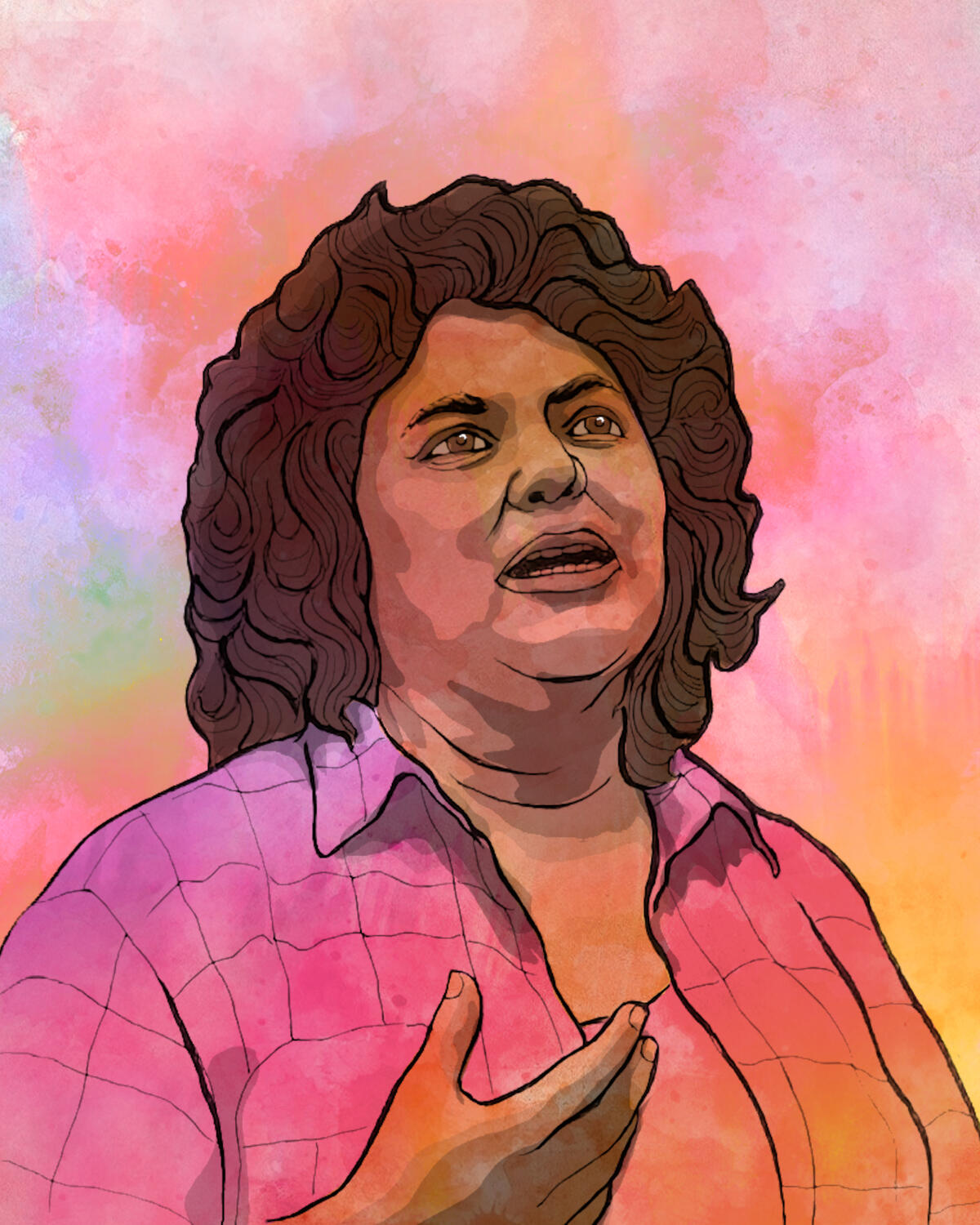
Berta Cáceres (Hondurus)
Berta Cáceres was an environmental indigenous rights activist who founded the National Council of Popular and Indigenous Organizations of Honduras (COPINH) to address the growing threats posed to Lenca communities and fight for their territorial rights and improve their livelihoods. Against the odds of violence, detainment, and murder towards their movement, Berta Cáceres rallied the indigenous Lenca people of Honduras and waged a grassroots campaign that successfully pressured the world’s
largest dam builder to pull out of the Agua Zarca Dam, a construction on the sacred Gualcarque River, that violated international treaties governing indigenous peoples’ rights. Today COPINH and fellow activists continue Berta Cáceres’ enduring legacy, fighting irresponsible development and standing up for the rights of the Lenca people in Honduras.“They are afraid of us because we are not afraid of them”
― Berta Cáceres
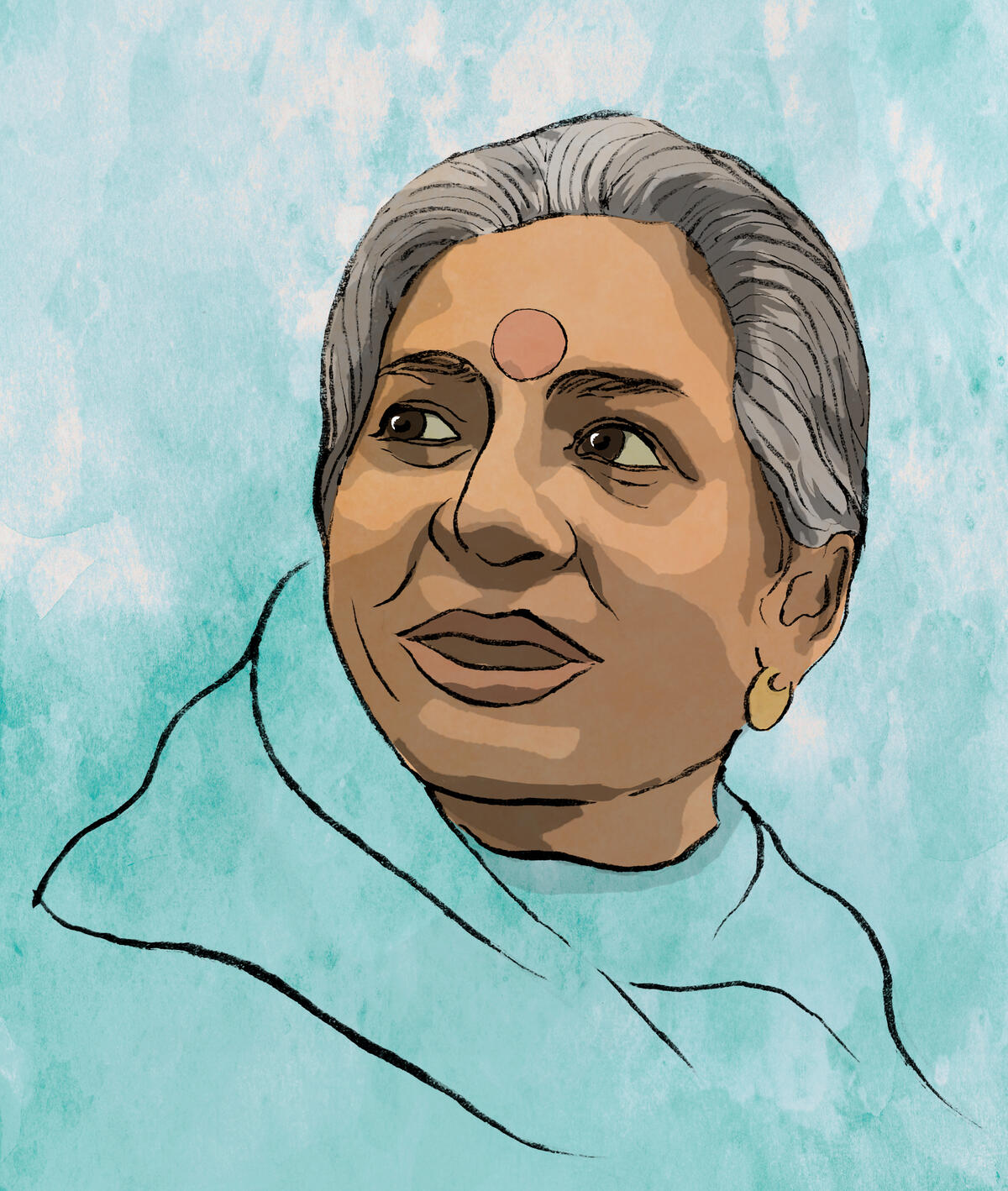
Vandana Shiva (India)
is an intellectual and activist from India, a tireless defender of the environment inspiring change globally. Her activism is rooted in promoting counter-development and supporting grassroots networks, women’s rights and ecology. As the author of numerous important books and articles, Shiva has shown a lifetime interest in campaigning against genetic engineering and the negative impacts of globalisation, fights for changes in the practice and paradigms of agriculture and food. She is the founder of Navdanya, a movement for biodiversity conservation and farmers’ rights. The organisation also teaches farmers methods of agroecology and organic farming, offering them ways to make their agricultural practices more sustainable. . As an activist, she has coordinated, supported and learned from grassroots networks on a wide range of issues across India. As an advocate, especially in international fora, she has proven to be one of the most articulate spokespersons of counter-development in favour of people-centred, participatory processes. As an intellectual, she has produced a stream of important books and articles, which have done much both to form and address the agenda of development debate and action.
“It's always a mystery, because you don't know why you get depleted or recharged. But this much I know. I do not allow myself to be overcome by hopelessness, no matter how tough the situation. I believe that if you just do your little bit without thinking of the bigness of what you stand against, if you turn to the enlargement of your own capacities, just that itself creates new potential.” “You are not Atlas carrying the world on your shoulder. It is good to remember that the planet is carrying you.”
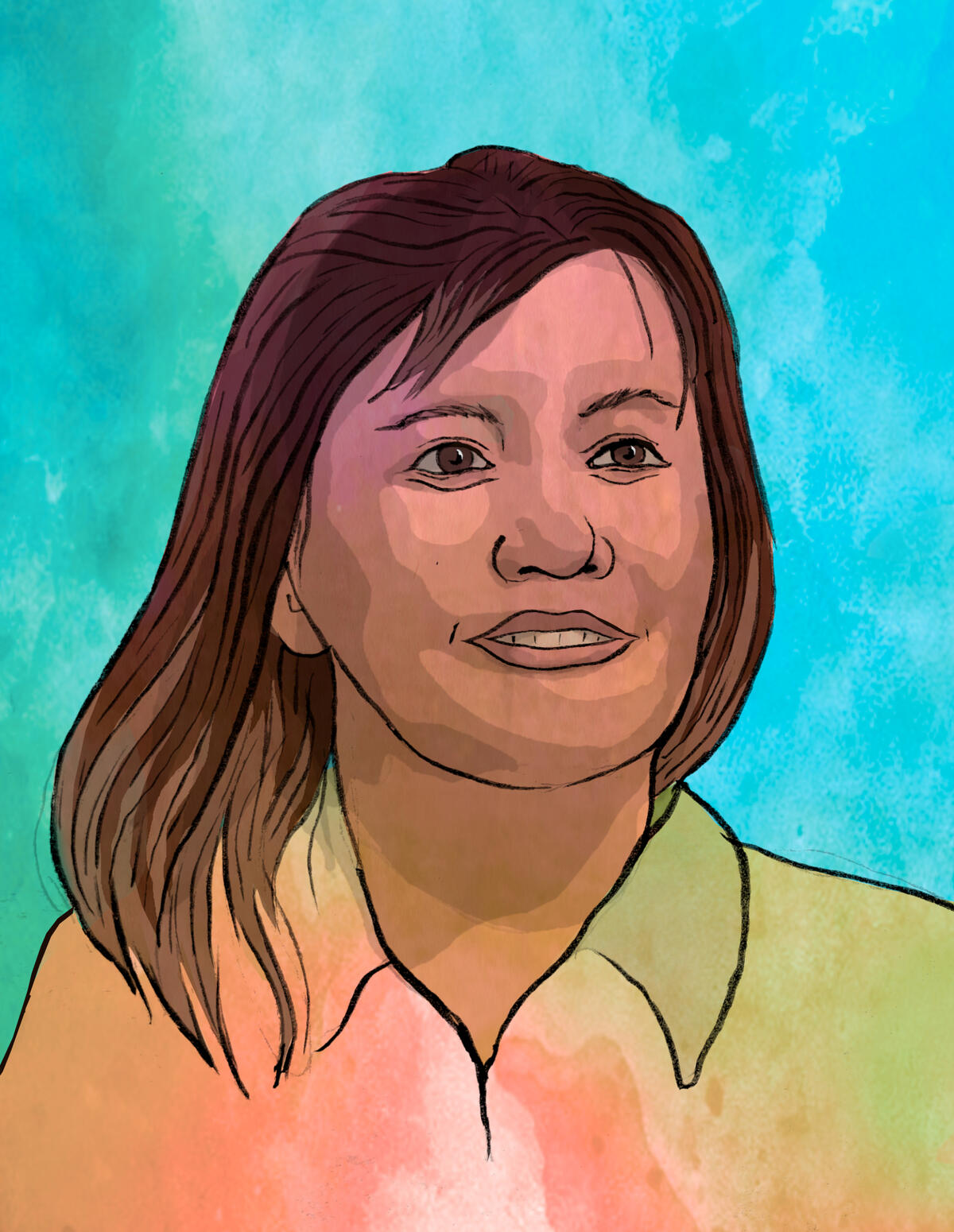
Delima Silalahi (Indonesia)
led a campaign to secure legal stewardship of 17,824 acres of tropical forest land for six Indigenous communities in North Sumatra. Her community’s activism reclaimed this territory from a pulp and paper company that had partially converted it into a monoculture, non-native, industrial eucalyptus plantation. The six communities have begun restoring the forests, creating valuable carbon sinks of biodiverse Indonesian tropical forest.
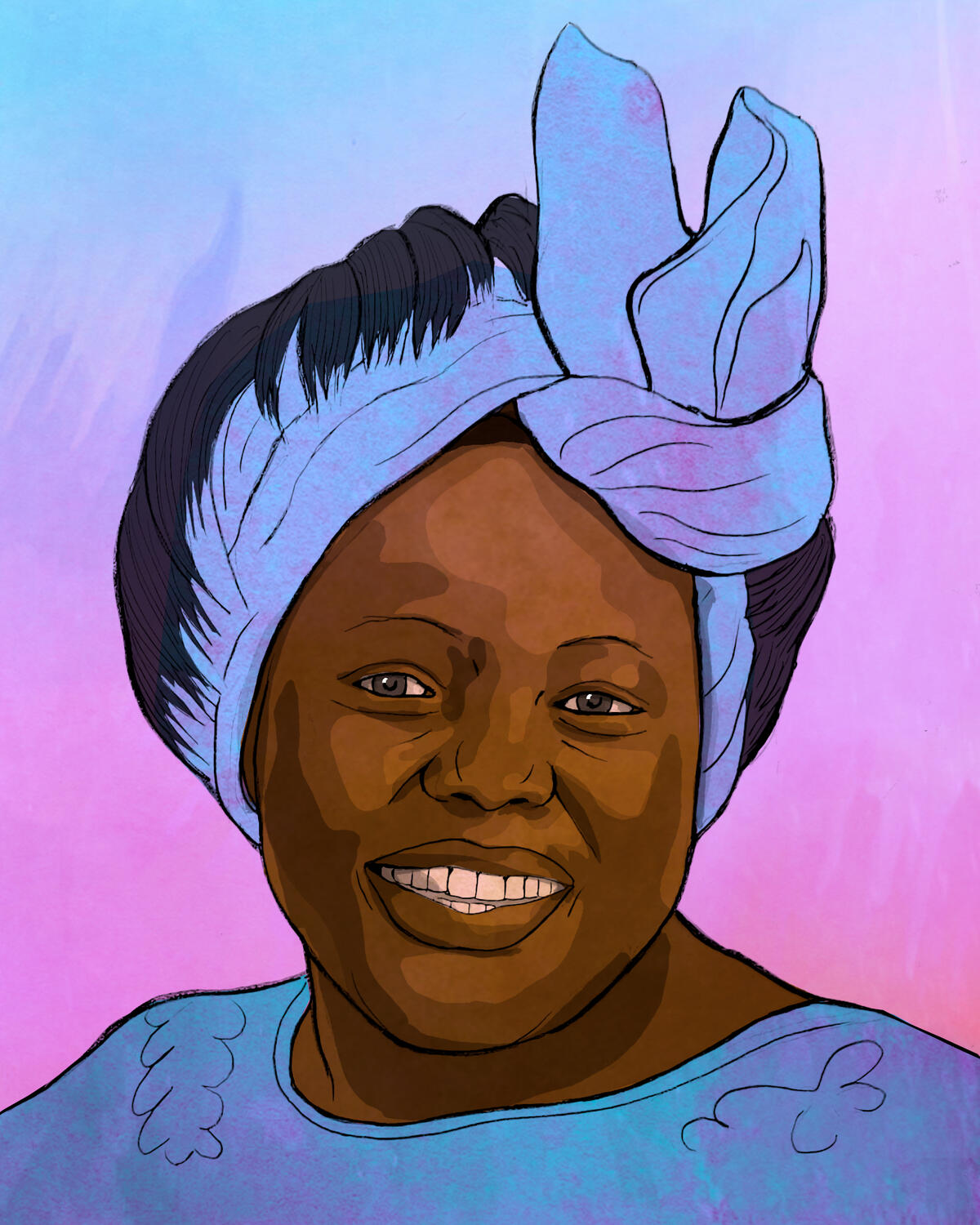
Wangarĩ Muta Maathai (Kenya)
was an environmental and political activist. She founded the Green Belt Movement, an organization for planting trees, in Kenya. Since 1977, The Green Belt movement has worked with communities to plant more than 51 million trees in Kenya. Also the Movement played a critical role in Kenya's fight for a multi-party democracy. In the 1980s, it carried out pro-democracy activities such as registering voters and pressing for constitutional reform and freedom of expression."It's the little things citizens do. That's what will make the
difference. My little thing is planting trees." - Wangarĩ Maathai
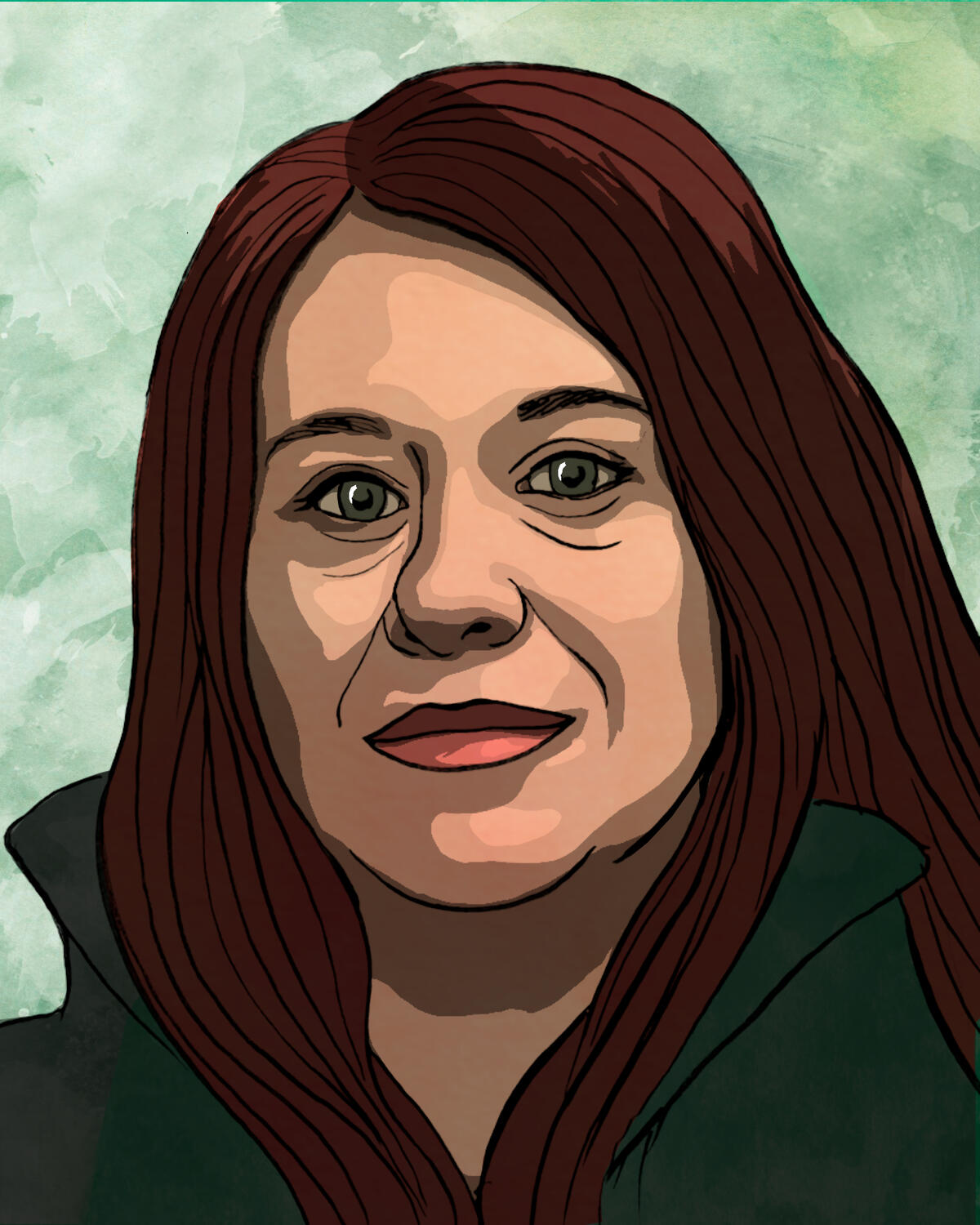
Ana Čolović Lešoska (Macedonia)
is a biologist who since 2011 Ana Colovic Lesoska led a seven-year campaign to cut off international funding for two large hydropower plants planned for inside Mavrovo National Park—North Macedonia’s oldest and largest national park—thereby protecting the habitat of the nearly- extinct Balkan lynx. As a result, finance for the hydropower project was withdrawn,
and its loan was canceled. While seven months pregnant, Lešoska went door to door in the villages near Mavrovo informing locals about the impacts of the projects. And succesfully convinced the Government of North Macedonia to suspend further work on dams in the national park.Lešoska created the Eko-Svest Center for Environmental Research and Information, to safeguard North Macedonia’s national parks and cultural heritage from large infrastructure projects, encourage citizen participation in the country’s national energy strategy, and promote sustainable transport, waste
management, and energy sources. Despite threats to her safety from the North Macedonian government and ELEM, she protected North Macedonia’s oldest national park and stood up for the critically endangered Balkan lynx."I felt that it was a matter of injustice, it's not as if a meteor
dropped on the middle of the park and destroyed the lynx, it's a
decision... It was a decision by the banks to contribute to the
extinction of the Balkan lynx.” - Ana Čolović Lešoska
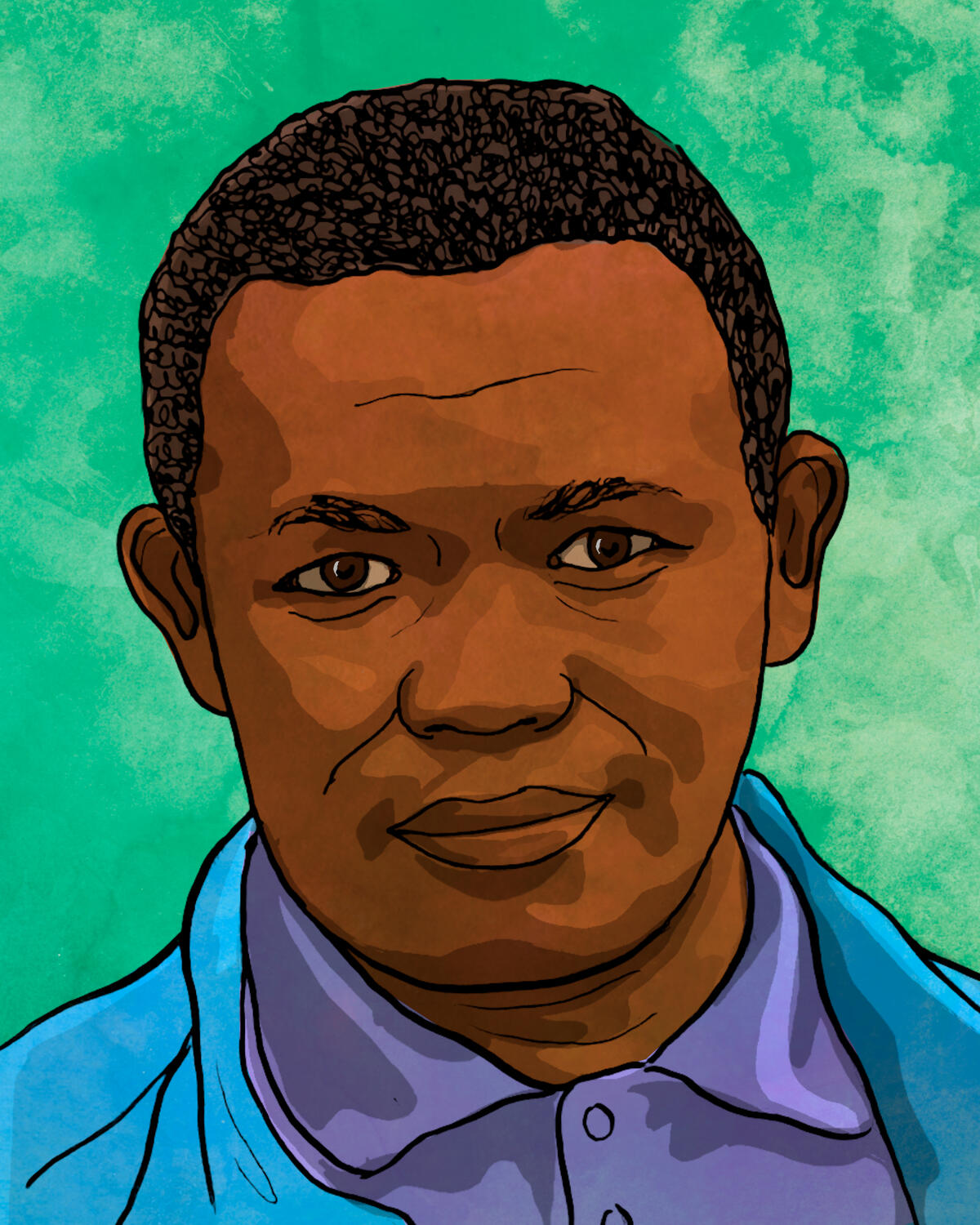
Clovis Razafimalala (Madagascar)
is a Malagasy environmental activist who combats the illegal trafficking of Madagascar’s natural resources, as well as the political corruption that allows for it to continue. As the coordinator of the Lampogno Network, Clovis has made it his mission to end the trafficking of rosewood in
Madagascar.Despite being made illegal in 1975, the exportation of rosewood runs rampant as the bright red bark is highly sought after for luxury products. In order to protect the fragile ecosystems of Madagascar’s forests, Clovis has advocated for an end to this illegal industry. In 2016, Clovis was falsely accused of organizing a riot and committing arson following the arrest of a fellow timber advocate. Although he was not present at the violent protest, Clovis was jailed for these crimes. Following an outpouring of support and a surprise trial, he was released from prison. Despite the intimidation they face, Clovis Razafimalala and his supporters remain vocal about protecting the unique beauty of Madagascar.“The forest is my life” - Clovis Razafimalala
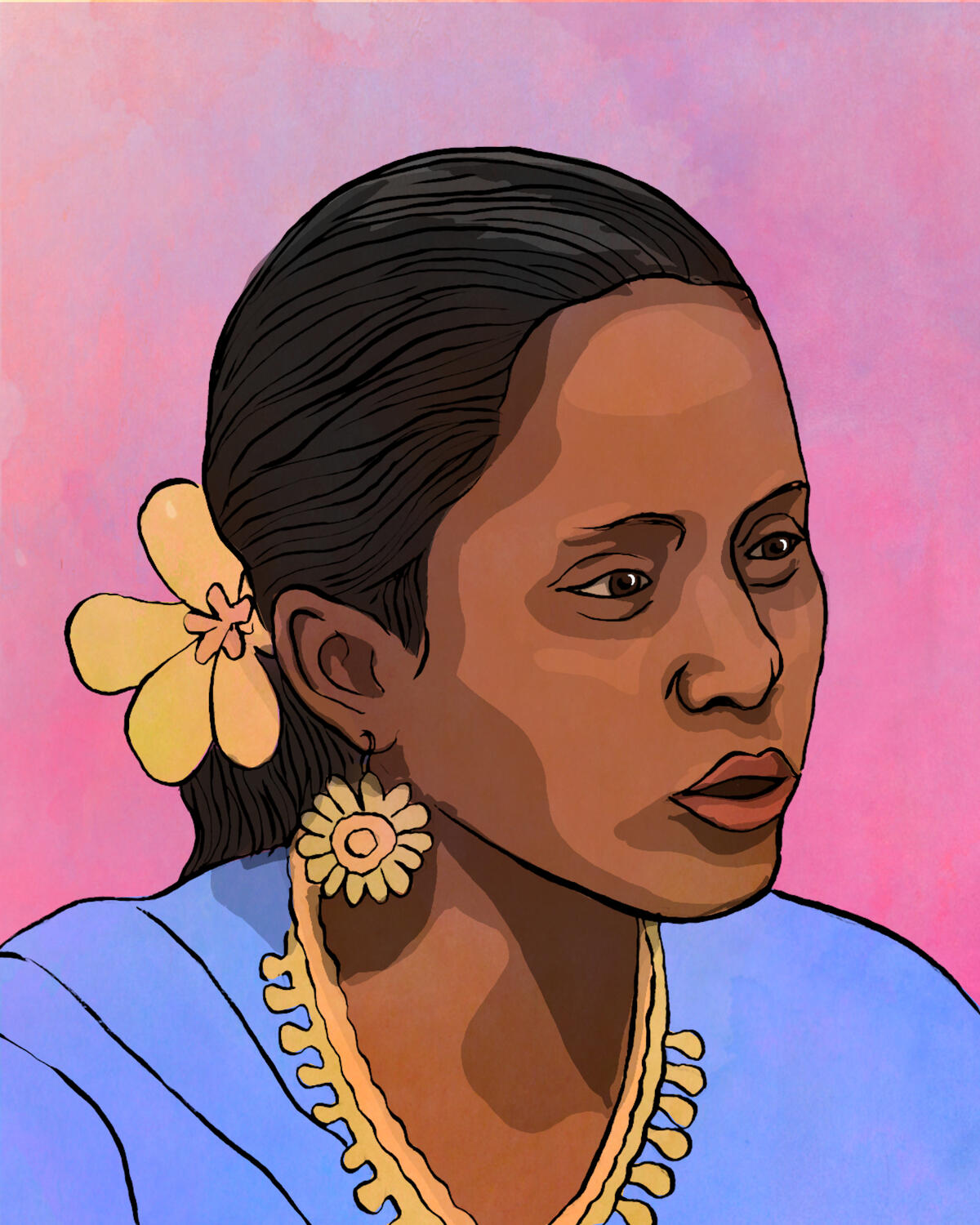
Kathy Jetnil-Kijiner (Marshall Islands)
Kathy Jetnil-Kijiner is a Poet, Climate Activist, Republic of the Marshall Islands. With her cousins, she co-founded the environmental non-profit Jo-Jikum, which empowers
Marshallese youth to seek solutions to climate change and other environmental impacts threatening their home island. Her poetry, in her words, “mainly focuses on raising awareness surrounding the issues and threats faced by my people. Nuclear testing conducted in our islands, militarism, the rising sea level as a result of climate change, forced migration, adaptation and racism in America—these are just a few themes my poetry touches upon”.“hands reaching out, fists raising up,
banners unfurling, megaphones booming
and we are canoes blocking coal ships
we are the radiance of solar villages
we are the rich clean soil of the farmer’s past
we are petitions blooming from teenage fingertips
we are families biking, recycling, reusing,
engineers dreaming, designing, building,
artists painting, dancing, writing
we are spreading the word
and there are thousands out on the street,
marching with signs, hand in hand
chanting for change NOW”
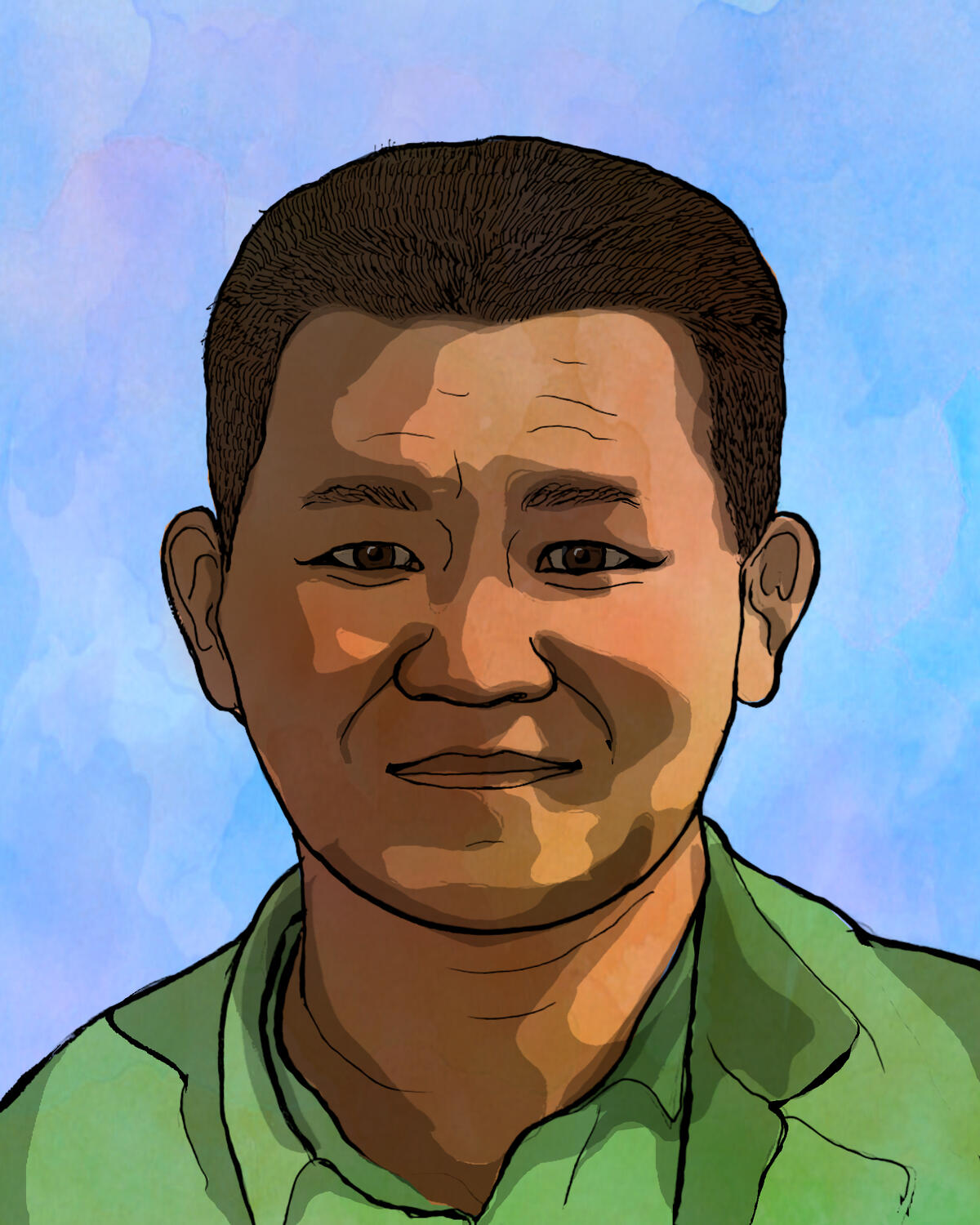
Tsetsgeegiin Mönkhbayar (Mongolia)
Tsetsgeegiin Mönkhbayar is a herdsmen and environmental activist, who successfully shut down destructive gold-mining operations along Mongolia’s scarce waterways. Mönkhbayar heads the Onggi River Movement (ORM), a grassroots organization that protects and restores the Onggi River, and inspiring people to get together and protect their rights. His work has led to the formation of the Mongolian Nature Protection Coalition, which brought together 11 Mongolian river movements and has had significant impact on the awareness of this issue both at the grassroots and legislative levels. Devoting his time, Mönkhbayar convinced the Mongolian Government to pass and enforce more restrictive laws in 2006, including the Law on Minerals, which regulates mining and protect precious waterways. In addition, 35 of the 37 mining operations working in the Onggi River Basin have ceased destructive operations. Erel Mining Company—the most egregious violator—has been shut down and And citizen over- sites have been developed to ensure future sustainable construction methods. The Onggi River is flowing higher and farther than it has at any other time in years.“Gold can bring eternal happiness, and tragedy without end. . . When I realized that our water was becoming contaminated and our river was dying, this experience prompted me to act . . . Clean water and air are life itself for Mongolians."- Tsetsgeegiin Mönkhbayar
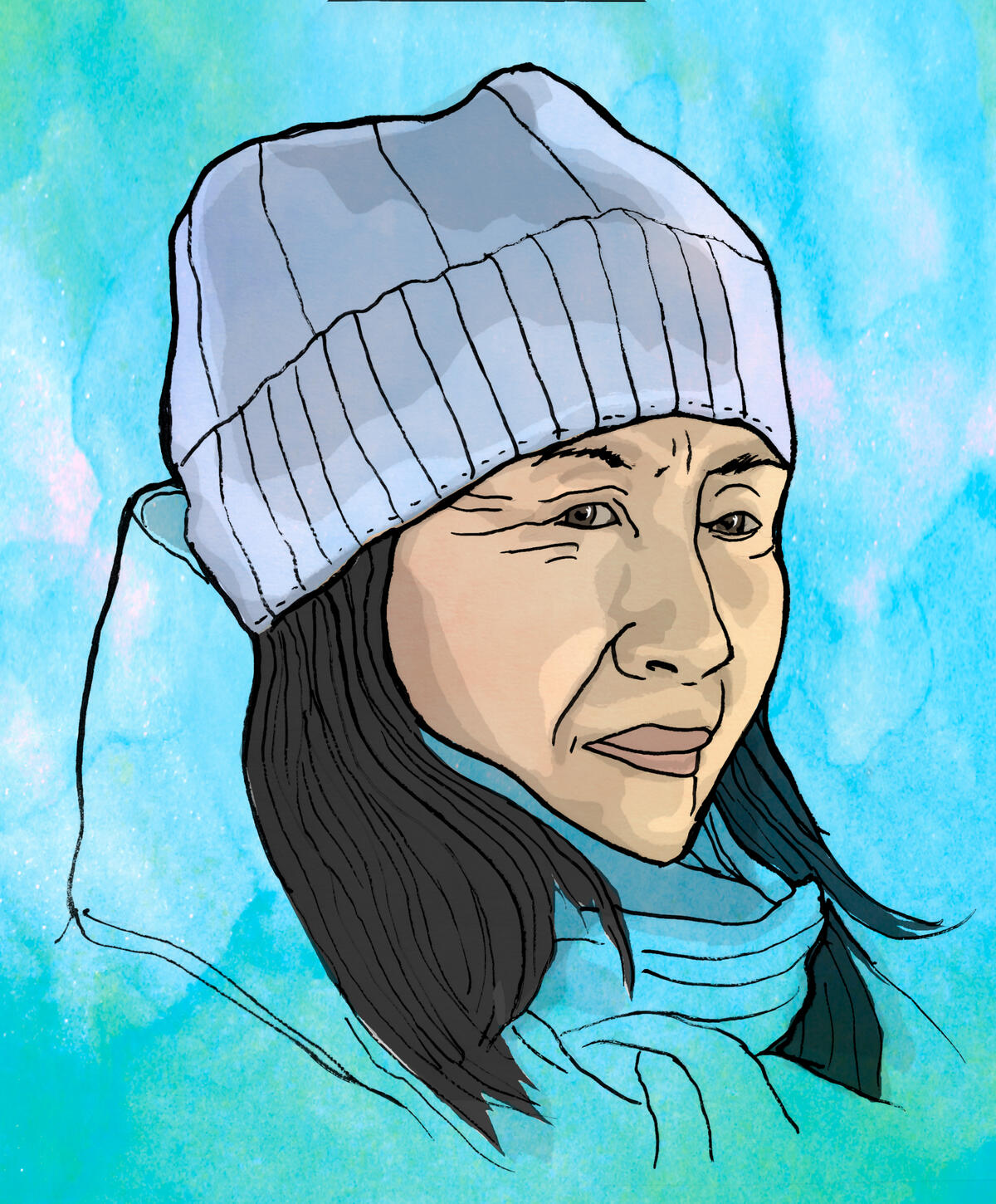
Bayarjargal Agvaantseren (Mongolia)Bayarjargal Agvaantseren helped create the 1.8 million-acre Tost Tosonbumba Nature Reserve in the South Gobi Desert—a critical habitat for the vulnerable snow leopard—in April 2016, then succeeded in persuading the Mongolian government to cancel all 37 mining licenses within the reserve. An unprecedented victory for the snow leopard, as of June 2018 there are no active mines within the reserve—and all mining operations are illegal.

Karuna Rana (Mauritius)
Karuna Rana is a Mauritian environmental activist, social entrepreneur, and community organizer. In addition to her work in Mauritius, she has influenced global change through her work. A crucial aspect of Karuna’s work is the connecting, inspiring, and involvement of people around the world to help drive and affect change.Karuna is one of the founders and current leaders of the non- profit SYAH. This organization spreads environmentally sustainable practices and awareness in Small Island Developing States (SIDS) throughout Africa and Asia. SYAH has been able to spread awareness of climate change and ways to combat it in these nations with limited resources and infrastructure. Looking toward the future, Rana By getting more directly involved, she hopes to create future environmental protection policies vital to the well-being of Mauritius.
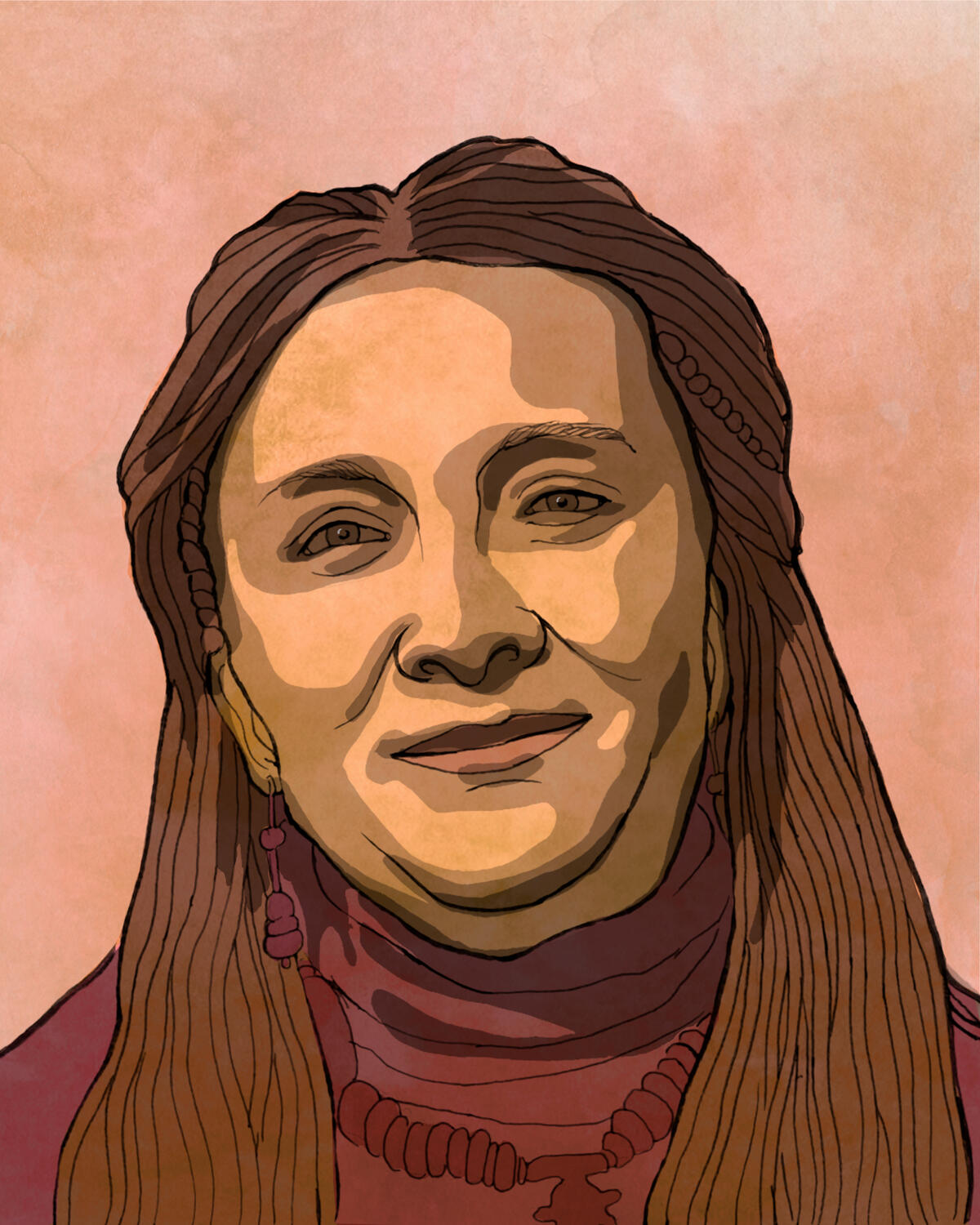
Jamila Bargach (Morocco)
Jamila Bargacj is an anthropologist and human rights activist, and director of a non profit organization which promotes local culture and creates sustainable initiatives through education, integration and use of scientific ingenuity with Southwest Morocco’s communities. When Jamila first came in contact with massive thick fog in the mountains of her country, it stirred her activism into a new direction.“The fact of witnessing a fog event, what’s called the fog sea, was so very amazing that I just fell in love with it,” said Bargach, the cofounder and director of Dar Si Hmad, which runs the world’s largest functioning fog collection project on Mount Boutmezguida in southwestern Morocco to deliver clean water to nearby villages without easy access to water. Currently, the organization brings fog-harvested water to 15 Morrocan villages in Aït Baâmrane, a Berber region, where women used to spend hours to bring water to their households. Now they can reallocate that time to do other things. In addition to fog harvesting, Dar Si Hmad is also deeply invested in education—a critical part of the organization’s mission. At the Water School, local children learn about the water cycle and water’s importance. The Ethnographic Field School teaches students about the impacts of climate change and responses to it.
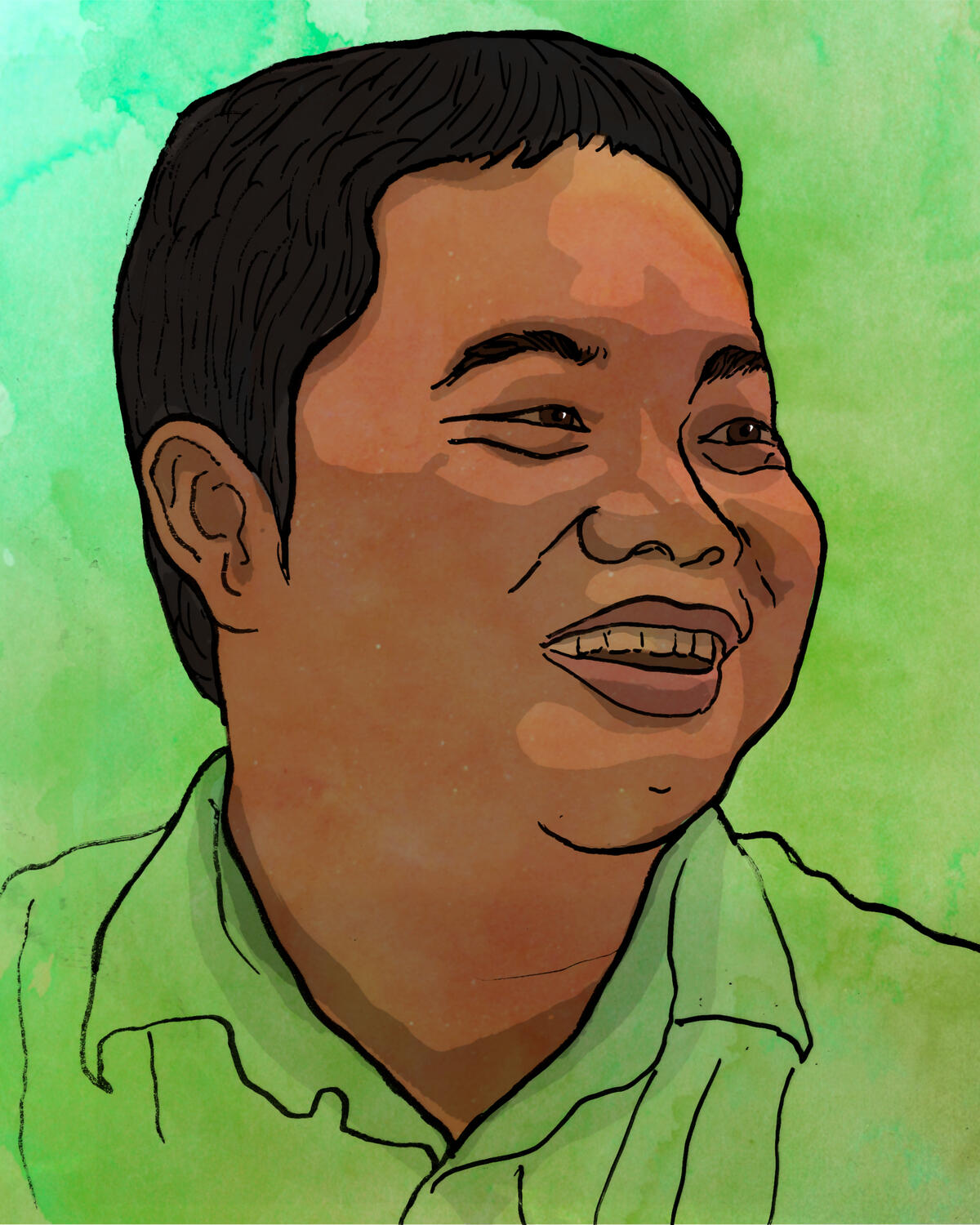
Thai Van Nguyen (Vietnam)
founded Save Vietnam’s Wildlife, which rescued 1,540 pangolins from the illegal wildlife trade between 2014 and 2020. Nguyen also established Vietnam’s first anti-poaching unit, which, since 2018, has destroyed 9,701 animal traps, dismantled 775 illegal camps, confiscated 78 guns, and arrested 558 people for poaching, leading to a significant decline in illegal activities in Pu Mat National Park. Pangolins are the world’s most heavily trafficked mammal despite an international trade ban. Heavy demand for their meat, scales, and blood threatens pangolins with extinction; all eight pangolin species are on the IUCN Red List.“We hope people will learn about the pangolin; how lovely they are, what challenges they face. One person or one organization cannot change everything, cannot save the pangolin, but if everyone takes action together, we can save the species.” - Thai Van Nguyen
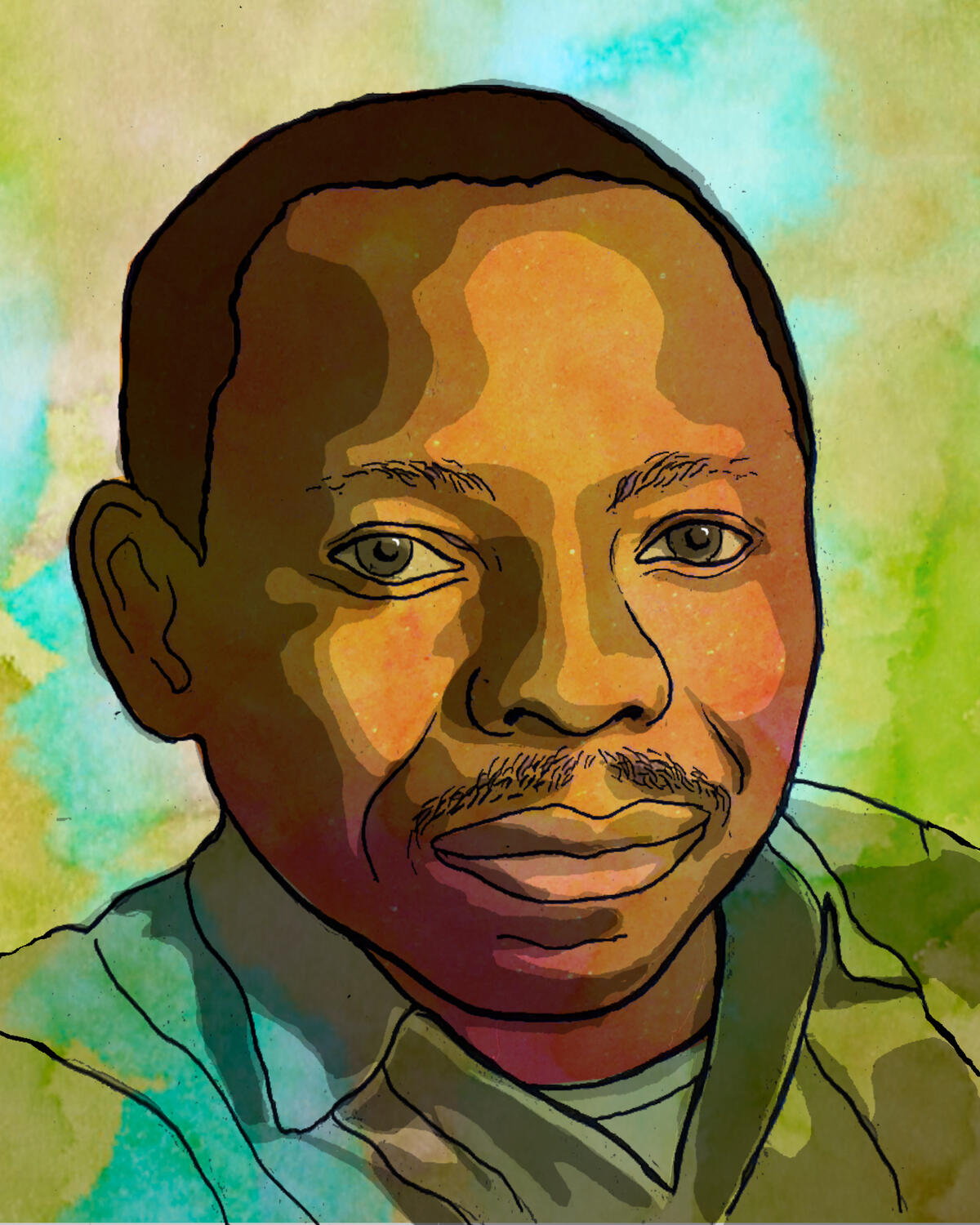
Ken Saro-Wiwa (Nigeria)
Ken Saro-Wiwa was environmental activist, and leading member of the Ogoni tribe of some 500,000 people, living in densely populated Ogoniland in south-eastern Nigeria. He was a central figure in the struggle to stop the devastation of the Niger Delta, which has been targeted for crude oil extraction since the 1950s and which has suffered extreme environmental damage from decades of indiscriminate petroleum waste dumping. Ken Saro-Wiwa had fought tirelessly against the destructive oil companies and the government to save the land and the Ogoni People.“Whether I live or die is immaterial. It is enough to know that there are people who commit time, money and energy to fight this one evil among so many others predominating worldwide. If they do not succeed today, they will succeed tomorrow.” - Ken Saro-Wiwa
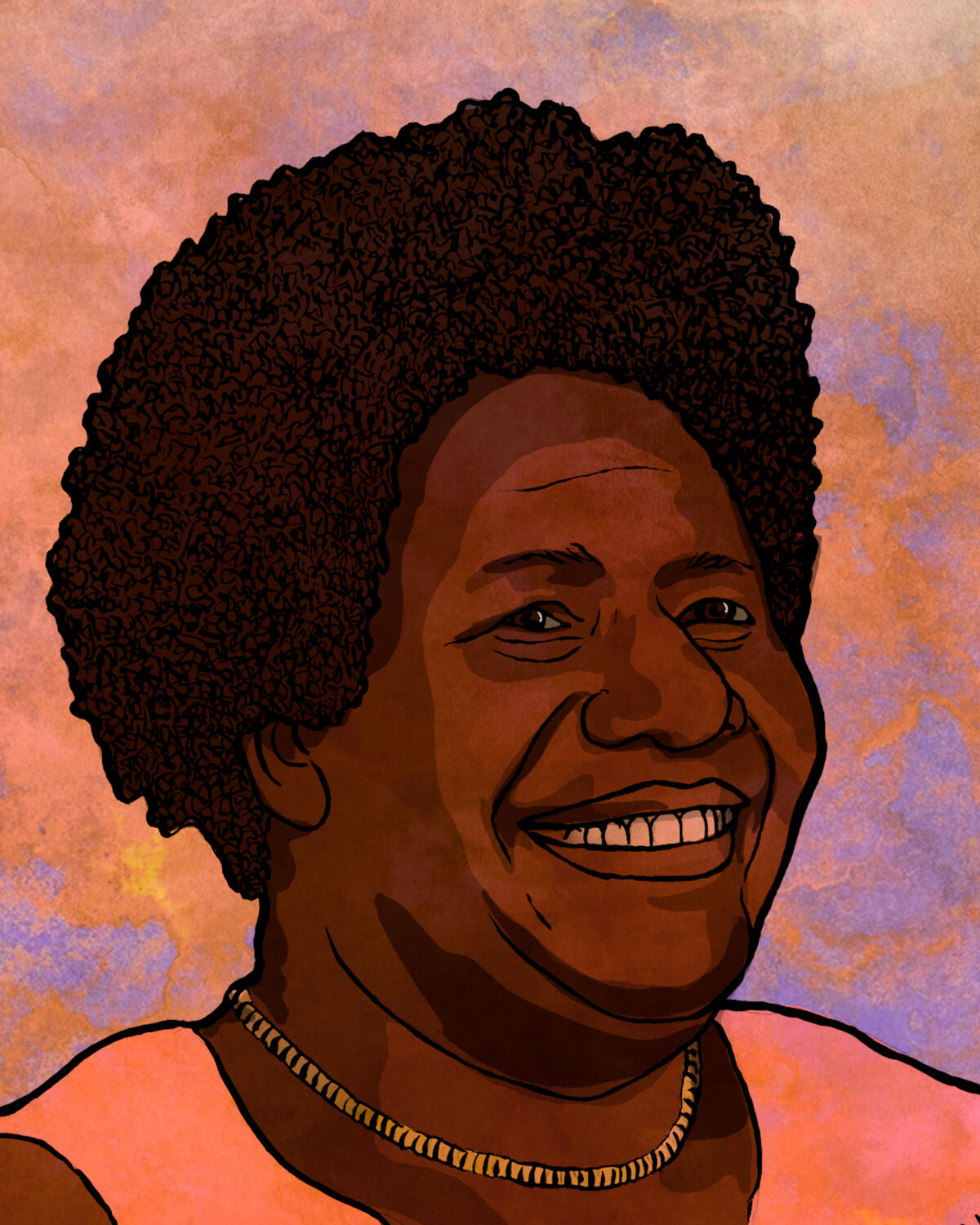
Ursula Rakova (Papua New guinea)
Ursula Rakova is an environmentalist and climate change activist born on the Carteret Islands in the Southwestern Pacific. Frustrated by inaction on the part of the Papua New Guinea government, Rakova’s community took matters into their own hands and formed Tulele Peisa in 2006, which means sailing the waves on our own.Rakova was asked by her elders to lead this local community organization through an unprecedented experience: relocating the entire island community of the Carterets to the safer ground of Bougainville, which is 80 kilometers, or up to five hours away by boat. The Carteret islands are expected to be uninhabitable by 2040, rendering Rakova's people the world's first climate refugees.Rakova also coordinated a landmark legal case whereby the Warangoi successfully sued illegal loggers and won compensation for their stolen forest resource. She established Bougainville Cocoa Net Limited to assist relocated Carteret Islanders with opportunities to produce fair trade cocoa.“We are being forced from our ancient island homeland to the mainland, where we must start new lives and find sustainable means to produce our food and survive. I want to make sure that my people have a future life for generations to come."
- Ursula Rakova
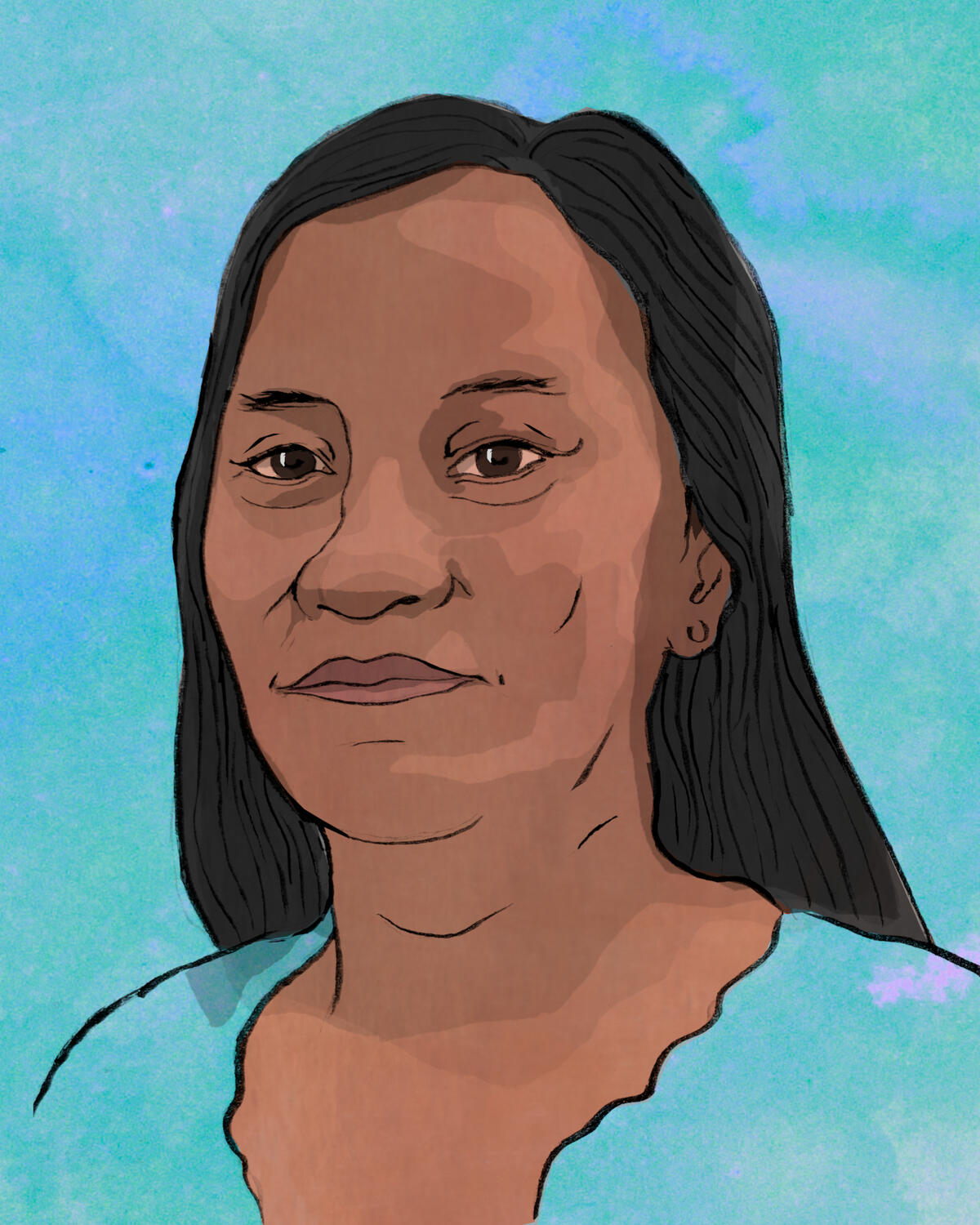
Liz Chicaje Churay (Peru)
In January of 2018, as a result of the efforts of Liz Chicaje Churay and her partners, the Peruvian government created Yaguas National Park. Comparable in size to Yellowstone National Park, the new park protects more than two million acres of Amazon rainforest in the northeastern region of Loreto. Its creation is a key step in conserving the country’s biodiversity—safeguarding thousands of rare and unique wildlife species and conserving carbon-rich peatlands—and protecting Indigenous peoples.
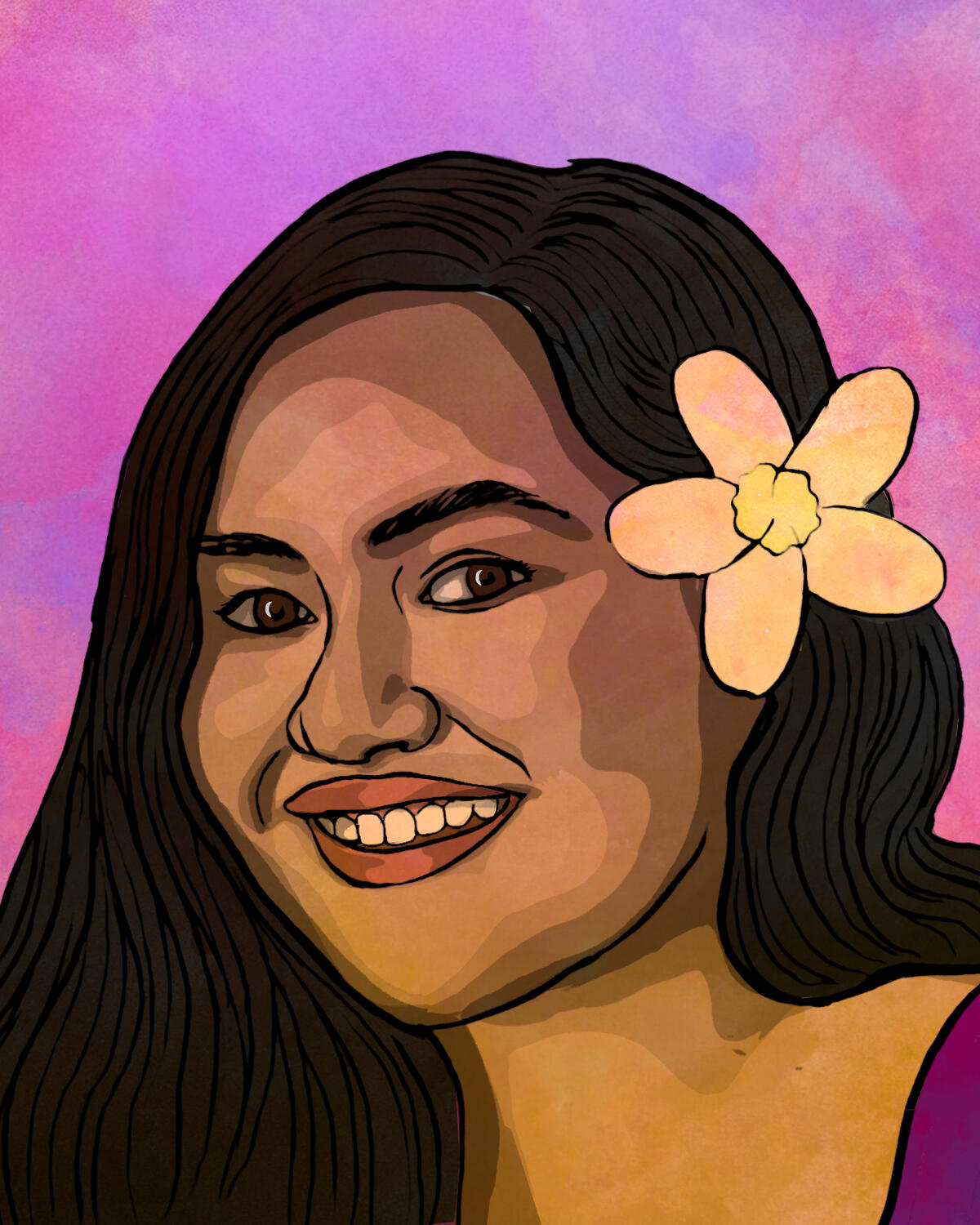
Brianna Fruean (Samoa)
Brianna Fruean is a climate change activist, a founding member of the grassroots climate change movement 350.Samoa, and leader of the environmental group “Future Rush”, which have rallied youth and communities alike in Samoa and the wider Pacific region to tackle climate change and embrace sustainable development. Brianna continues to develop and strengthen the voice of young people in the Pacific on the key issues of environment and climate change through a variety of activities including visiting schools and teaching children and youth about climate change and empowering them to be agents of social change.“We as youth may not hold all the power or money in the world but we have something more valuable in my opinion and that is passion.” - Brianna Fruean
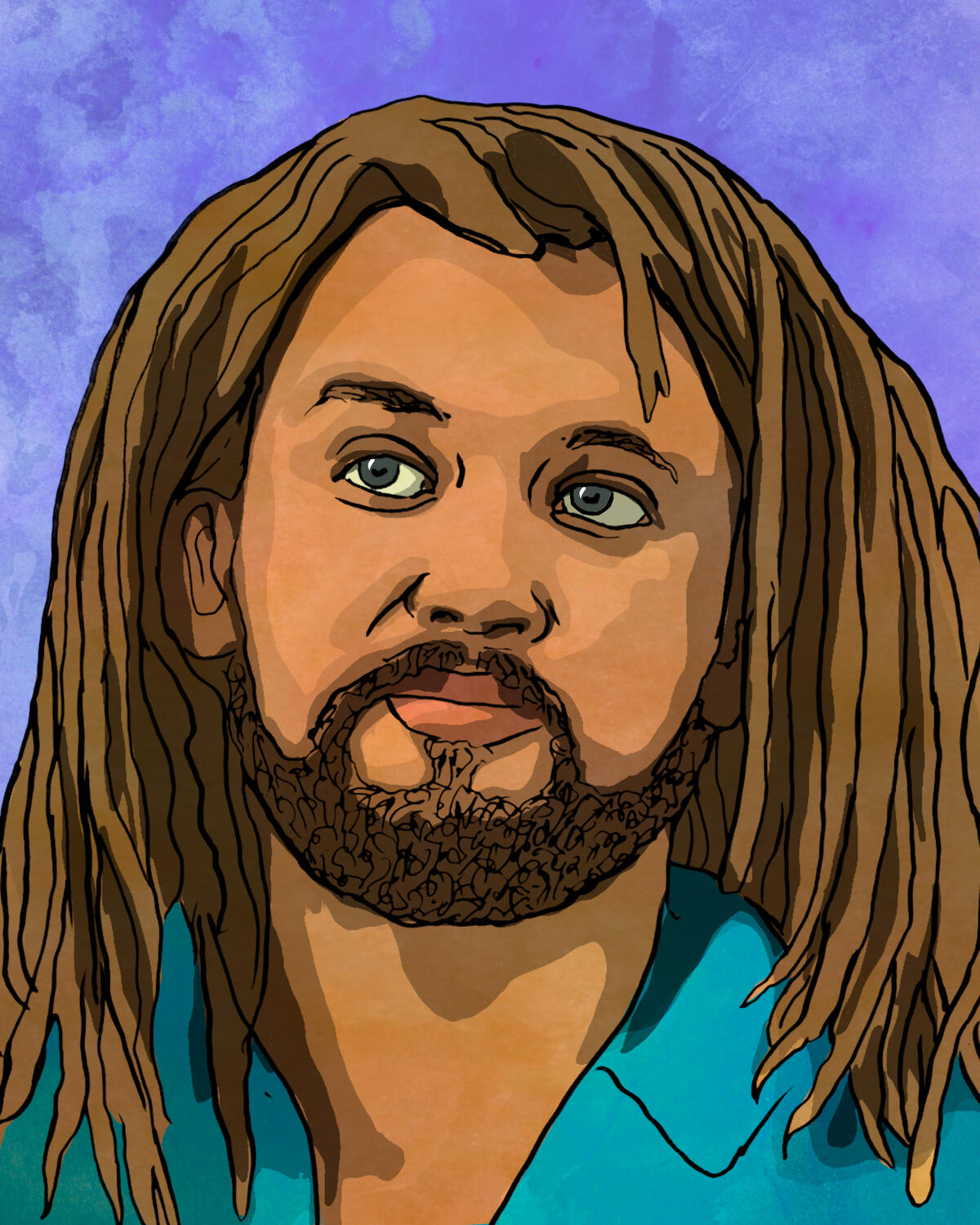
Jeremy Raguain ( Seychelles)
Jeremy Raguain is an environmental leader and conservationist primarily working with the Seychelles Islands Foundation, a leading environmental non-profit in Seychelles. He brings a from-the-field perspective to international negotiations. Jeremy has led several projects at SIF, most notably the Aldabra -Up Project to tackle the issue of marine plastic pollution, and supporting the council’s formulation of a “global blue new deal” by assessing young people's priorities for a blue economy.“For me island living entails being close and dependent on our ocean, for food, livelihood, health, recreation and so much more. I advocate for climate action and believe in fighting for a Blue Economy that is sustainable and equitable, having no extractive or fossil fuel industries included,” he says. Jeremy has a particular focus in determining how small island/ large ocean developing states can better leverage themselves in international politics to protect their biodiversity and human rights by way of global challenges such as climate change, invasive species, plastic pollution and security.“In the protection of life, life and water are inseparable. The symptom of our greed and disrespect of the Earth’s boundaries manifests itself in many ways; climate change, biodiversity loss, and much more. Plastic pollution is one of the easiest ways to see it. We should not only go out and clean waterways, we should also prevent people and corporations from creating the problem in the first place.” - Jeremy Raguain
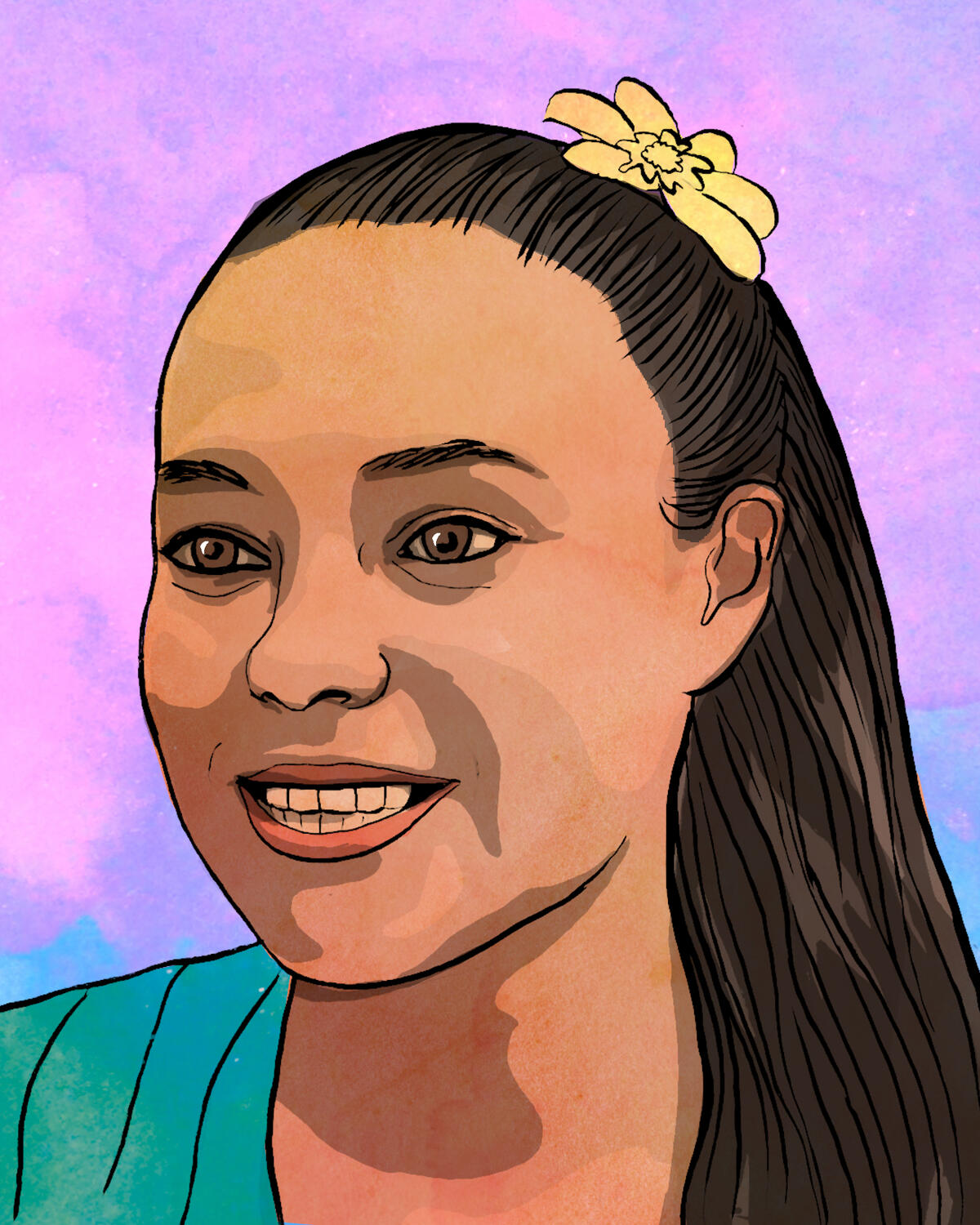
Gladys Habu (Solomon Islands)
Gladys Habu is an environmental activist who has campaigned for many years on a local and international level to advocate for increased awareness of the impact of climate change. When she was 14 years old, Gladys first saw how rising sea levels were starting to affect an island near her home. Five years later, Kale island, where her grandparents had lived, completely disappeared. Gladys is now working with other young people from across the world to drive forward greater awareness of the effects of climate change for Pacific Island countries. Gladys is also a UNICEF Pacific Supporter, focused on improving child and maternal health and acting as a role model to young women on the island. Gladys is a powerful advocate of the need to act now and a positive example to young people of how to bring about change.“Climate change is not just an environmental crisis. It is a health crisis and a social crisis as well.” “Embracing nature has always been part of me.” - Gladys Habu
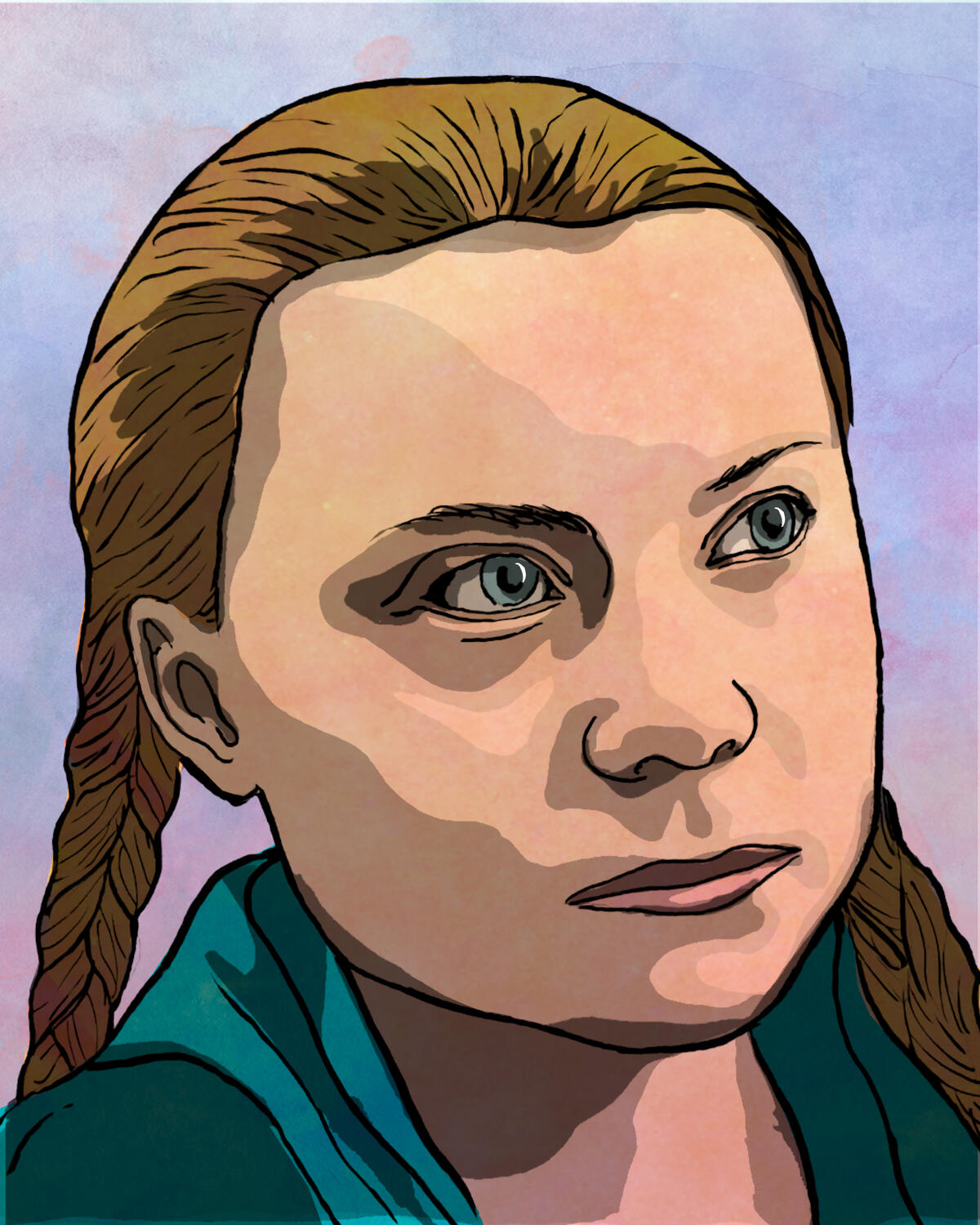
Greta Thunberg ( Sweden )
Greta Thunberg is an environmental activist known for challenging world leaders to take immediate action for climate change mitigation In 2018, the first day of the school year, 15- year-old school student Greta Thunberg began a solo school strike demanding government action on climate change. Instead of going to class, she printed leaflets declaring "My name is Greta and I’m in ninth grade. And I refuse school for the climate until the Swedish general election." Then she headed to the Swedish parliament building where she protested alone. Within a couple of days a handful of people began to join her, and she gave numerous interviews to journalists, making headlines around the world. Within a few months, hundreds of thousands of schoolchildren in hundreds of towns and cities around the world organised their own walkouts. Since then Greta Thunberg has been an strong voice for environmental protection and addressing climate change across the world.“I’ve learnt that no one is too small to make a difference.” - Greta Thunberg
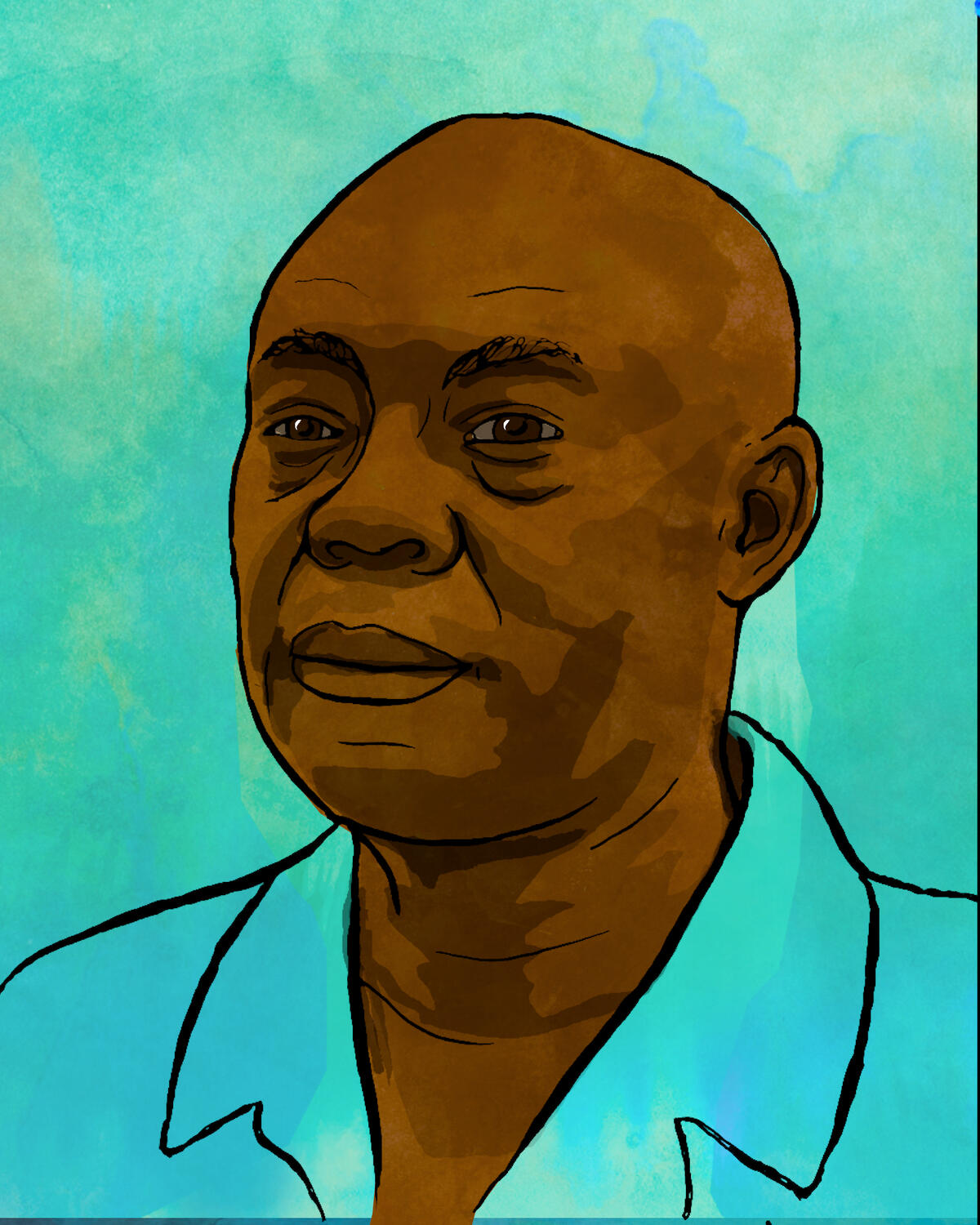
Gerald Bigurube (Tanzania)
Gerald Bigurube is a conservationist who has spent his life fighting against poaching and protecting the environment, relentlessly campaigning for nature and wildlife conservation in Tanzania for 44 years. For 16 years he worked for the Tanzanian National Park Authority. Under his leadership, poaching was drastically reduced and wildlife populations recovered significantly. Mr. Bigurube follows the approach that nature conservation can only be sustainable if the local population is involved. He played a crucial role in the development of the Wildlife Management Areas, which helped to ensure that the income from safari tourism also benefits the people living there.
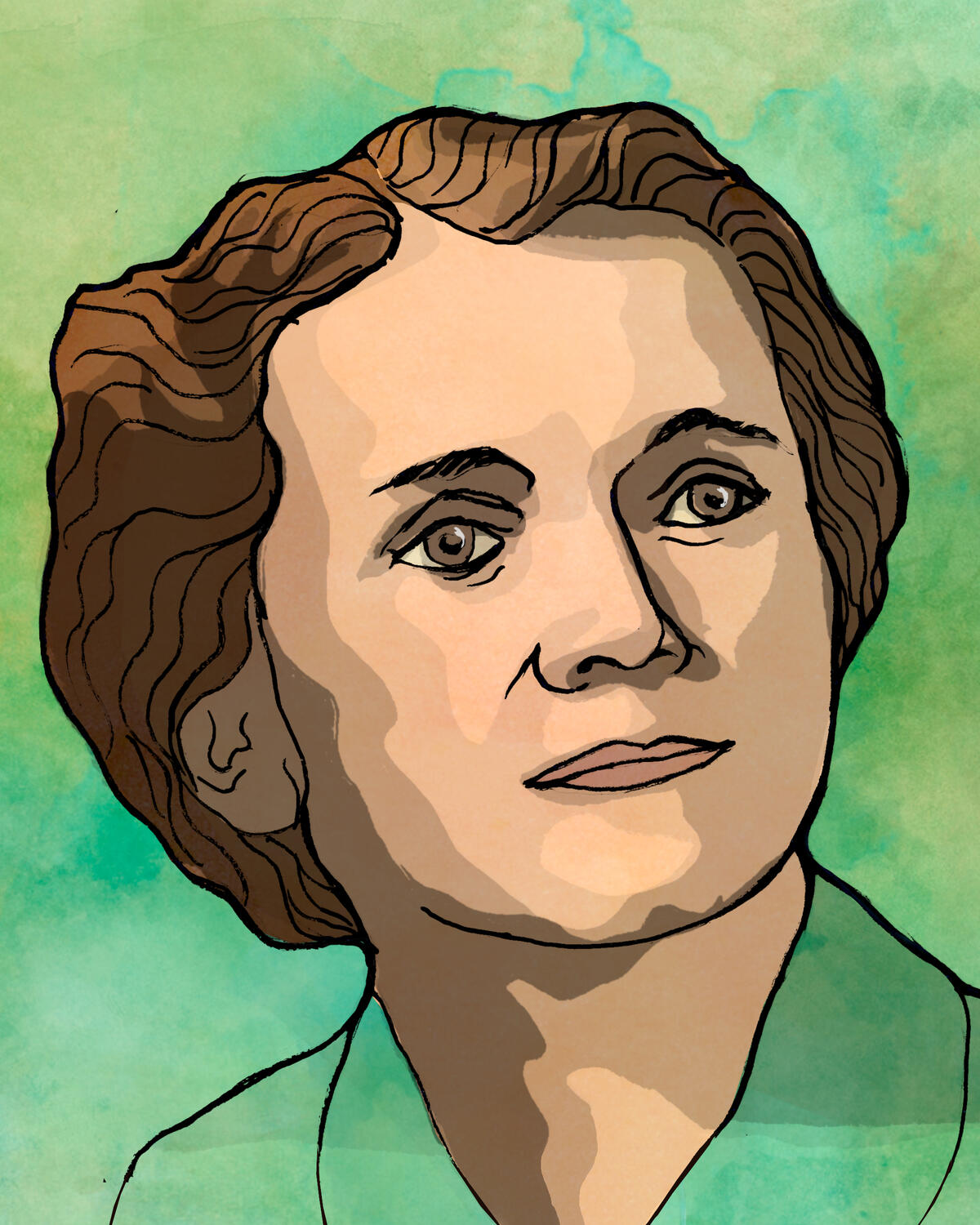
Rachel Carson (United States) (1907–1964)
is regarded by many as the founder of the modern environmental movement. Her most famous work, however, was 1962's controversial "Silent Spring," in which she described the devastating environmental impacts of pesticides. She referred to them aptly as "biocides", or killers of life. It was a seminal scientific book written for lay readers, and it addressed complex topics such as bioaccumulation and biomagnification in ways that allowed the average citizen to understand and become alarmed about them.The book is credited with launching the concept of the environment as a system that sustains us and that we must learn to live within, rather than a mine, dump or playground. It infuriated government and industrial interests and she was attacked by lobbyists as an alarmist. Though pilloried by chemical companies and others, Carson's observations were proven correct, and pesticides such as DDT were eventually banned, which in turn saved endless wildlife.“The more clearly we can focus our attention on the wonders and realities of the universe about us, the less taste we shall have for destruction.”
― Rachel Carson
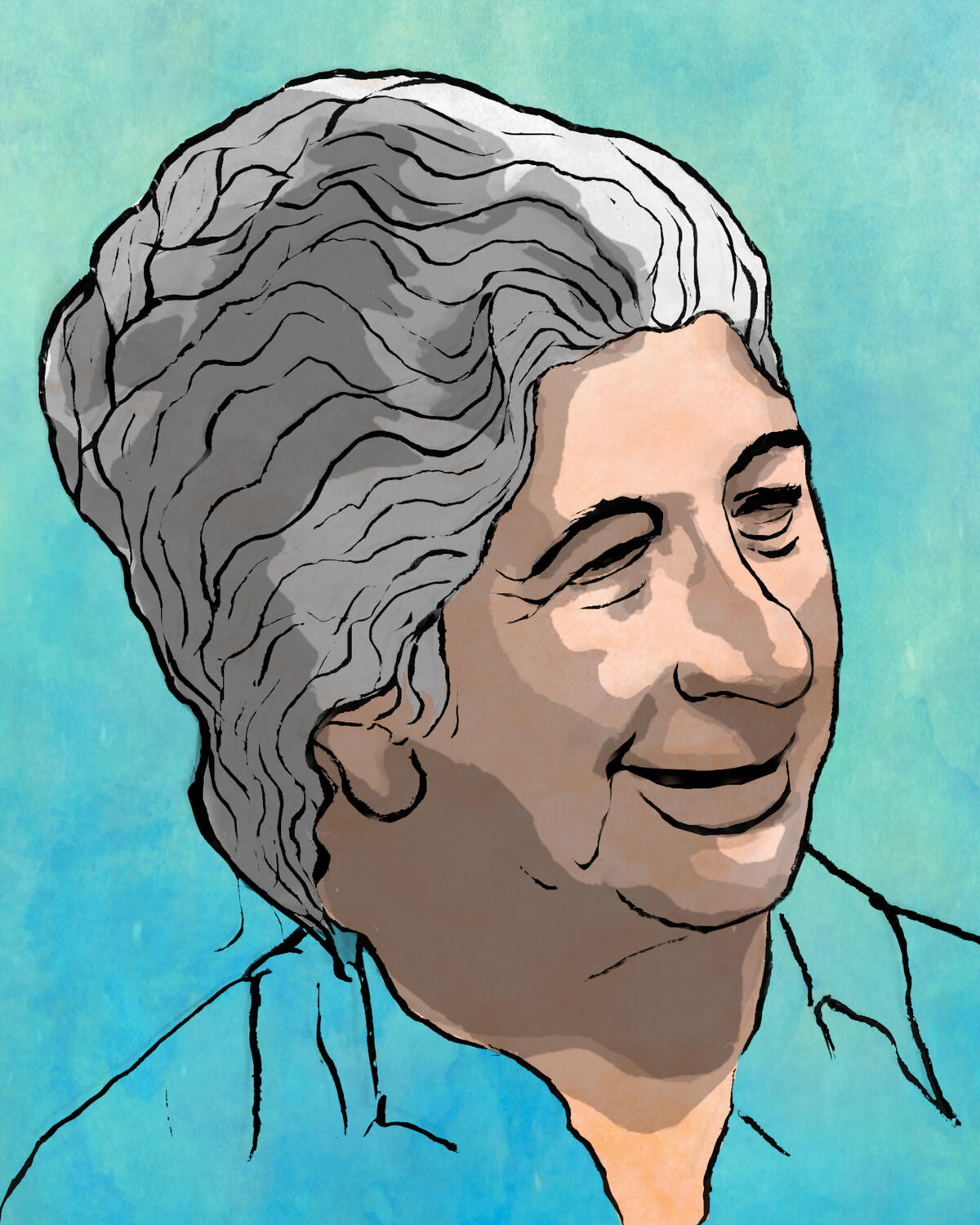
Margaret Thomas Murie (1902 - 2003)
Margaret Thomas Murie is hailed by many, including the Sierra Club and the Wilderness Society, as the “Grandmother of the Conservation Movement.” The naturalist, author, and adventurer loved the outdoors and spent nearly 40 years studying wildlife with her husband, Olaus, on backcounty expeditions in Alaska and Wyoming. In 1956, she and her husband started a campaign to protect some of Alaska’s at risk natural territory. With the help of U.S. Supreme Court Justice William O. Douglas, they convinced President Dwight Eisenhower to set aside 8 million acres as the Arctic National Wildlife Refuge. Three decades later, she worked on the Alaska National Interest Lands Conservation Act, which doubled the size of the refuge. In between, she was instrumental in passing the Wilderness Act, which officially defined wilderness areas and created the National Wilderness Preservation System, which today protects over 100 million acres. For her work, Murie was honored with the Audubon Medal and the Presidential Medal of Freedom.

Thank you
You will receive a response soon.